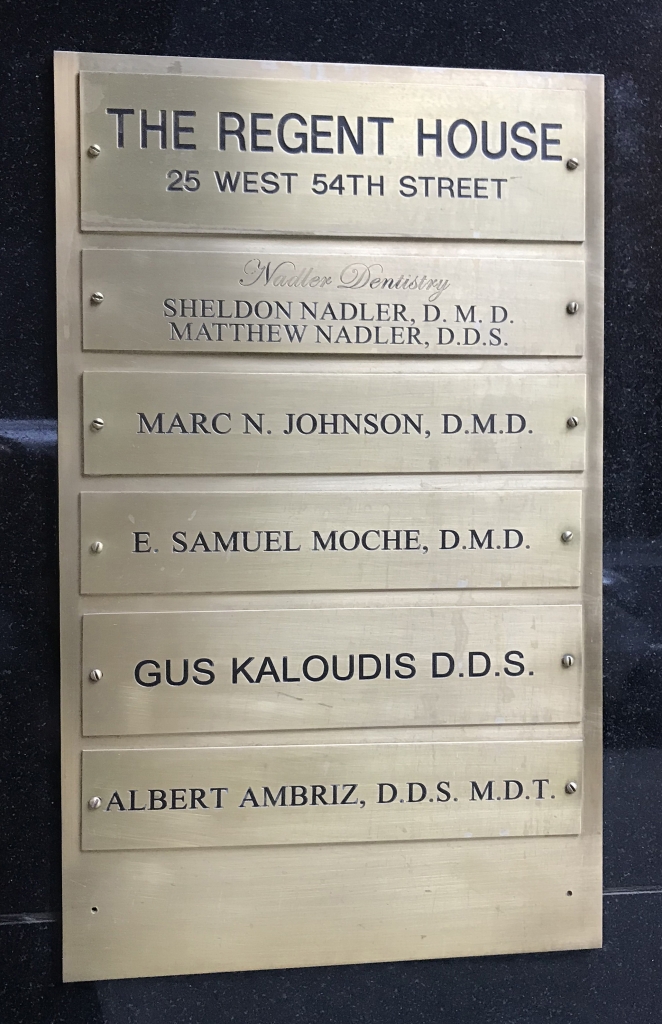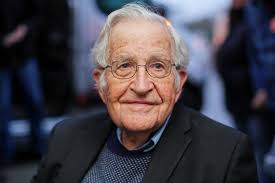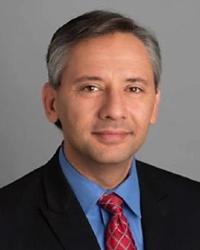

How to Correctly Use the Titles Dr. & PhD With a Name

How to Reference a Person With a PhD
When someone has earned a Doctor of Philosophy, or Ph.D., degree, that person is subsequently referred to as “doctor” in formal speech. The same is true of a person who is a medical doctor, psychologist, dentist or veterinarian. In formal speech, that person should be referred to as “doctor.” However, the rules are different in written form when addressing someone who is called “doctor” in formal speech. In written form, the titles “Dr.” and “Ph.D.” are not interchangeable.
Determine the Type of Doctor
First, you should identify what type of doctor you are addressing. Doctors of medicine and psychology, doctors of dentistry and doctors of veterinary medicine must be addressed differently in comparison to academic doctors who have earned a Doctor of Philosophy doctoral degree. Be advised that there are different types of doctoral degrees. A Doctor of Philosophy degree is just one kind of doctoral degree. There’s also, for example, a Doctor of Education doctoral degree and a Doctor of Psychology doctoral degree. The titles associated with the various doctoral degrees are not interchangeable. Only a person who has earned a Doctor of Philosophy degree should be addressed as Ph.D.
Addressing a Doctor in Writing
Place the title of “Dr.” before the name of a person who is a doctor of medicine or psychology, doctor of dentistry, or doctor of veterinary medicine. For example Dr. George Ross. Always write the word “doctor” in its abbreviated form when it goes before the person’s name. Never write, for example, Doctor George Ross. Do not combine the title of “Dr.” with any other title even if the person could appropriately be addressed by a different title. Never write, for example, “Dr. George Ross, Ph.D.,” even if the person is a medical doctor who has also earned a Doctor of Philosophy degree. Pick one title. Do not use the “Dr.” title when referring to someone who is solely an academic doctor.
Put a comma followed by the title “Ph.D.” after the name of a person who has earned a Doctor of Philosophy doctoral degree. For example Stacey Childs, Ph.D. Do not combine the title of “Ph.D.” with any other title even if the person could appropriately be addressed by a different title. For instance, even if the person being addressed is a doctor of medicine who has also earned a Ph.D., never write, for example, Dr. Stacey Childs, Ph.D. Pick one title. Do not use the “Ph.D.” title when referring to someone who not earned a Doctor of Philosophy doctoral degree.
Related Articles
How to sign your name when you have a bachelor of science in criminal ....

Proper Way to Notate College Degrees

How to Address a DVM

Different Types of Doctoral Degrees

How to Address Multiple Ladies in a Letter

The Difference Between a Doctoral Degree and a Ph.D.

The Difference Between a PhD & DLitt

Doctorate Degrees That Don't Require a Dissertation
- The Emily Post Institute: What are some professional titles to know?
Maya Austen began freelance writing in 2009. She has written for many online publications on a wide variety of topics ranging from physical fitness to amateur astronomy. She's also an author and e-book publisher. Austen has a Bachelor of Arts in communications from the New England Institute of Art and currently lives in Boston, Mass.

How to Use a Doctorate with Your Name
—- For more on the the use of Port-Nominal Abbreviations , see that page . —- For more on use of an Honorary Doctorate , see that page . How to Use a Doctorate with Your Name
Here are the forms to use when addressing a person addressed as Dr. See the discussion below “How to Use a Doctorate with Your Name 1-2-3-4-5” for more information on who typically does use Dr. as part of their name and who does not.
—- Envelope or address block on letter or email to their office/place of work: ——– (Full Name), (Post-nominal abbreviation for doctorate held). ——– ( Name of office/place of work if appropriate) ——– (Address)
—- Social/Personal envelope: ——– Dr. (Full Name) ——– (Address)
—- Salutation – for both official & social: ——– Dear Dr. (Surname): How to Use a Doctorate with Your Name
Robert Hickey author of “Honor & Respect”
How to Use a Doctorate with Your Name: 1-2-3-4-5
—- #1) Holders of doctorates who work in academia or research institutions are addressed as ‘Dr. (Name)’ professionally and socially in a salutation or conversation. Thus, a Ph.D. professor at a college, a Ph.D. in biology doing scientific research, and a Ph.D. principal at an elementary school all use Dr. (Name) and everybody thinks it is normal.
—- NOTE: At some universities it is traditional to address faculty holding of academic doctorates as ‘Mr. (Name)’ or ‘Professor (Name)’ and not to address as ‘Dr. (Name)’. For those outside the academic community it is acceptable to follow the insider’s rule or to address holders of doctorates as ‘Dr. (Name)’ in writing or oral address.
—- #2) Protestant clergy with doctorates are addressed as ‘Dr. (Name)’ in a salutation or conversation. I specify ‘Protestant’ here because not all clergy is. For example, neither priests – addressed in a salutation or conversation as Father [Name] – nor rabbis – addressed as Rabbi [Name] – holding doctorates are ever addressed as Dr. [Name] . In a salutation or conversation they stick with Father[Name] and Rabbi [Name].
—- #3) Holders of doctorates who work outside academia or research don’t always prefer to be addressed as ‘Dr. (Name)’. in a salutation or conversation. —- —- A) In the USA ‘Dr.’ may be used depending on the work environment and/or when the degree isn’t pertinent to the conversation. E.g., a Ph.D. in finance working at a bank or a Ph.D. in American history working in software development are not likely to insist on being addressed as ‘ Dr. (Name)’ . But always ask for their preference. Use of, or omitting, the honorific can be a sensitive issue to some individuals! —- —- B) And, outside the U.S.A. everyone holding a doctorate will want to be addressed as ‘Dr. (Name)’ in every instance.
—- #4) In hospitals and healthcare environments historically there was a practice that only physicians (medical doctors, osteopaths, dentists, podiatrists, veterinarians, etc. ) are addressed as ‘Dr. (Name)’. This was explained to be out of consideration for the patients who want to know who ‘the doctors’ are and who are nurses and allied healthcare professionals.
—- That made for some unhappy professionals who earned doctorates in hospital administration, pharmacy, physical therapy and nursing, etc. – who felt they too were properly addressed as ‘Dr. (Name)’ . It’s my understanding that today all the holders of doctorates are addressed as Dr. (Name) and hospitals (etc.) have figured out other ways to define which doctor is a physician, which is a physical therapist and which is a nurse anesthetist.
—- #5) All that said, ultimately how one is addressed by others is up to the individual and usually everyone goes along. For example, if you and I meet a woman who identifies herself as ‘Monsignor Alice’ … I think it is unlikely she’s a Roman Catholic Monsignor. And, it’s unusual she has only one name, like Pink, Rhianna, Sting, Cher, or Madonna. But we should directly address her in conversation as ‘Monsignor Alice,’ it’s nice to meet you …’ because that’s what she says her name is. How to Use a Doctorate with Your Name
—- But, when she’s out of range, we will all be talking about her.
—- —- – Robert Hickey
Related Healthcare Links -V — — Chiropractor / Doctor of Chiropractic Medicine -V — — Dentist / Doctor of Dentistry -V — — Medical Doctor / Doctor of Medicine -V — — Military Physician / Armed Services -V — — Optometrist / Doctor of Optometry -V — — Osteopath / Doctor of Osteopathy -V — — Podiatrist / Doctor of Podiatry -V — — Veterinarian / Doctor of Veterinary Medicine
More Related Healthcare Links: -V — — Person holding a doctorate -V — — Pharmacist / Doctor of Pharmacy -V — — Psychologist -V — — Therapist
Related Links: —- —- —- Principal —- —- —- Headmaster —- —- —- President College University —- —- —- President of a School —- —- —- Chancellor —- —- —- Professor
When To Use Dr. (Name) and When To Use (Name), Ph.D.?
My daughter is receiving her Ph.D. and will be teaching. I would like to give her a name plate for her desk. Should it be ‘Dr. (Full Name)’ or ‘(Full Name), Ph.D. ‘? ——————- – AP
Dear AP, How to Use a Doctorate with Your Name
‘(Full Name), Ph.D.’ is the official form of her name. You will use it on the envelope, or in the address block of a letter, when you write to her with regard to her professional pursuits. This is the form the university will use when she is listed among the faculty. It is used by the degree holder, when specifying the exact degree is pertinent – like on business cards or in a list of academics.
‘Dr. (Full Name)’ is the social form of her name. You will use it when you write her name on a personal letter’s envelope, e.g., one sent to her home. This is the form everyone will use on the envelope when they send her a birthday or holiday card. It is rarely used by the degree holder since one does not correctly give oneself an honorific. The degree holder – in their signature or when introducing him or herself – just uses their name … no ‘Dr.’ It’s up to the other person to add the ‘Dr.’ E.g., I just introduce myself as ‘Robert Hickey’ – never ‘Mr. Robert Hickey.’
Sometimes you will observe a physician in a healthcare setting introducing him or herself as ‘Dr. (Name)’ – but there it is for the patient’s benefit to know they are the physician in a field of people wearing seemingly identical white coats!
‘Dr. (Surname)’ is the conversational form of her name. Use it both officially and socially in a letter’s salutation as well as in oral conversation.
So, for an office name plate use the official form of her name – (Full Name), Ph.D.
– Robert Hickey

Doctors present the official form of their name to the public: (Full Name) (Pertinent post-nominals for the service offered). The social form of their name does not include their degree: Dr. (Full Name). In both official and social salutations and conversations patients use Dr. (Name).

If My Doctorate is in Music, am I ‘Dr.’?
I hold a DMA, Doctorate in Music, from a Boston university and am a Church Music Director. Please could you advise me as to whether it is acceptable for the church where I work to list me in the service bulletins as: ‘Dr. (First name) + (Last name) ‘? —————- – CJ
Dear CJ: How to Use a Doctorate with your Name It is correct to list yourself in the bulletin using the professional form of your name … (First name) + (Last name), DMA. It specifies your academic credential in your professional domain.
Among protestant denominations many address their clergy with a doctorate orally and in a salutation as Dr. (Surname). If your church is one of those, and it is your preference is to be Dr. (Surnhttps://formsofaddress.info/wp-admin/post.php?post=13983&action=edit#ame), tell everyone that it is your preference to be addressed Dr. (Surname).
Usually academics and researchers who go by Dr. (Surname) professionally – use Dr. (Surname) socially. But ultimately whether a particular Ph.D. holder is ‘Dr. (Name)’ socially … especially outside of healthcare, academia or research … is at the preference of the bearer. Some insist, some don’t care, others say they answer to anything they are called. Ultimately your name belongs to you and if you want to be Dr. (Surname), then it’s your right to request everyone address you that way.
– Robert Hickey How to Use a Doctorate with your Name
May I Call Myself Dr. (Name) if my Degree Is Not Related to the Service I Offer?
I have a Ph.D. and license in counseling. Recently I sent out an announcement for a yoga class I will be teaching. The state of Colorado says I should not teach yoga as “Dr. (Name)”. How can I convince them I can? ——– – Kevin S., Ph.D., L.P.C., C.M.T., I.K.Y.T.A. , Counseling, Yoga Therapy, Integrative Health & Healing
Dear Dr. Kevin, How to Use a Doctorate with your Name
Your Ph.D. is in a field not related to the service you are offering.
A couple of typical practices I observe in the USA come to mind:
Professionals use with their name the degrees pertinent to their profession service. The degrees and certifications are provided for the benefit of the public so the public can quickly evaluate your credentials.
Here’s what I mean by pertinent . A pastor who would be the Reverend (Full Name) & Pastor (Name) at church on Sundays, would not use the Reverend (Full Name) & Pastor (Name) when teaching English Monday through Friday, at the local high school. That he or she is the Reverend might be mentioned in a complete biography or introduction. It just isn’t part of his/her name at school.
So, I can see if you are using ‘Dr. (Name)’ when offering a class in yoga, and your doctorate is not directly to the service you are offering, say a doctorate physical therapy or kinesthetics …. it would be confusing to me … and the state officials must think it is misleading to the public.
– Robert Hickey How to Use a Doctorate with Your Name

Should I Use Dr. or Ph.D. on an Invitation?
If a person holds a Ph.D., should his or her name be ‘Dr. (name)’ a wedding invitation? Or ‘( Name), Ph.D.’ ? Is this true for the father of the bride? The groom? Is the rule for names on wedding invitations and wedding envelopes different that the guidelines for social correspondence? ————– – Beverly Russell, Winchester, Virginia
Dear Ms. Russell: Wedding invitations and their envelopes are social correspondence. Post-nominal abbreviations ( Ph.D. is a post nominal abbreviation) aren’t used on social correspondence:
—- —- DON’T use Ph.D.
—- —- DO use Dr. (Name)
Another question that typically comes up is whether to use Doctor or Dr. (spelled out or abbreviated) on the invitation or on the mailing envelope?
The rule is to spell out everything and not to use abbreviations unless space is an issue.
But, Mr., Mrs., Dr., and Ms. (for which there is no spelled-out version) are typically used on invitations and when addressing invitations in even the most formal circles. I think ‘Doctor (Name)’ looks oh-so-highly precious, but I know some wedding planners who would wrestle me to the mat on that one.
When Should You Use the Forms on this Page?
You can use these forms of address for any mode of communication: addressing a letter, invitation, card or Email. (If there are differences between the official and social forms of address, I will have mentioned the different forms.) The form noted in the salutation is the same form you say when you say their name in conversation or when you greet them. ___ What I don’t cover on this site are many things I do cover in my book: all the rules of forms of address, about names, international titles, precedence, complimentary closes, details on invitations, place cards, all sorts of introductions , etc. I hope you’ll get a copy of the book if you’d like the further detail.
Not Finding Your Answer?
—- #1) At right on desktops , at the bottom of every page on tablets and phones , is a list of all the offices, officials & topics covered on the site.
—- #2) If you don’t see the official you seek included or your question answered send me an e-mail . I am pretty fast at sending a reply: usually the next day or so (unless I am traveling.) Note: I don’t have mailing or Email addresses for any of the officials and I don’t keep track of offices that exist only in history books.
—- #3) If I think your question is of interest to others, Sometimes I post the question – but always change all the specifics.
— Robert Hickey
Recommended Resources: The Protocol School of Washington (PSOW) and Protocol and Diplomacy International – Protocol Officers Association (PDI-POA) For more information see the Protocol Resources page.
Share This Story, Choose Your Platform!
How to Use Dr and PhD with a Name
In English, as in many other languages, professional titles have abbreviations. These are for writing convenience but people will sometimes annunciate them while speaking. Two of these, Dr and PhD, are very common references when talking about the specific name of a doctor.
Therefore, it means you’re referring to people and in this case, it’s a college-trained and licensed individual who practices things like medicine, psychology, science, mathematics or some other field of study. But, like with most other things in English grammar, there is a particular use of Dr and PhD.
To use “Dr” to indicate a doctor, most particularly in the fields of medicine and science, you will put it before a person’s name. You can indicate first and last name. But, if you want to be casual or informal, you can use Dr before only mentioning a first name.
Dr. Sherri Tenpenny
There are some people who receive doctorate degrees, the highest education one can receive in any given subject. While they are doctors, they aren’t medical, scientific or psychological doctors. For instance, they could have a doctorate in things like politics, journalism, economics or some other such thing.
Dr. Shane Ammora, PhD
Mnemonic Device
Whenever you want to write or mention the name of someone who’s a doctor, you’ll either use Dr or PhD to indicate their title. But, Dr comes before and PhD will be after.
How Do You Address Someone With a PhD Degree?
In academia and professional settings, knowing how to properly address someone with a PhD is crucial. This guide will help you navigate the etiquette of using titles and addressing individuals who hold doctoral degrees.
Jun 26, 2024

Understanding the PhD Title
A PhD, or Doctor of Philosophy, is the highest academic degree awarded in many fields and signifies a doctorate level of education. While it doesn't necessarily mean the holder is a medical doctor, it does signify extensive expertise in their area of study.

When to Use "Dr." as a Title
In academic and professional contexts, it's generally appropriate to address someone with a PhD as "Dr." followed by their last name. This is especially true in:
- Formal correspondence
- Academic settings
- Professional conferences often focus on the proper way to address someone with a doctorate.
- When introducing speakers
However, some PhD holders prefer not to use the title outside of professional settings. It's always best to ask for their preference if you're unsure.
Addressing Someone with a PhD in Email
When writing an email to someone with a PhD, start with a formal salutation to ensure the proper way to address someone with a doctorate:
- "Dear Dr. [Last Name],"
- "Hello Dr. [Last Name],"
If you're replying to an email where they've signed with their first name, it's usually fine to address them similarly in your response.
Using the Title in Person
When meeting someone with a PhD for the first time, it's polite to use their title:
"It's nice to meet you, Dr. [Last Name]."
They may then invite you to use their first name, which you can do in subsequent interactions, recognizing their doctorate.
Envelope and Formal Letter Etiquette
When addressing formal letters or envelopes to someone with a PhD:
- Dr. [Full Name], PhD
- [Full Name], PhD
The second format is used when you want to include the specific degree but not use "Dr." as a title.
Proper Salutation in Various Contexts
Academic settings.
In universities or research institutions, always err on the side of formality:
- "Dear Dr. [Last Name]," for written communication
- "Dr. [Last Name]" for verbal address
Professional Conferences
At conferences, it's common to use titles such as
"Our next speaker is Dr. [Full Name], who will present on..."
Social Settings
In casual situations, follow the PhD holder's lead to determine the proper title to use. If they introduce themselves by their first name, it's usually fine to use it.

Common Questions About Addressing PhD Holders
Should i use "dr." or "phd" after the name.
Generally, use "Dr." before the name rather than "PhD" after it. For example:
- Correct: Dr. Jane Smith
- Less common: Jane Smith, who holds a doctorate (PhD)
Can I use "Mr." or "Ms." instead of "Dr."?
It's best to use "Dr." unless the person has indicated otherwise. Using "Mr." or "Ms." for someone with a PhD can be seen as diminishing their academic achievements.
How do I address someone with multiple doctoral degrees?
If someone holds both a PhD and an MD, for instance, you can use either "Dr." or their professional title, depending on the context.
Addressing someone with a PhD or a doctorate correctly shows respect for their academic achievements. While "Dr." is generally appropriate in formal and academic settings, it's always best to be attentive to individual preferences and context. When in doubt, it's perfectly acceptable to ask how the person prefers to be addressed.
Remember, the key is to be respectful and adaptable. With these guidelines, you'll be well-equipped to navigate the etiquette of addressing PhD holders in various situations.
Easily pronounces technical words in any field
Doctorate Addressing
Professional Communication
Academic Titles
PhD Etiquette
Recent articles

Your Guide to Standardized Tests for College
Kate Windsor
Jul 30, 2024
Standardized Testing Trends
Test-Optional Policies
ACT Strategy
SAT Preparation
College Admissions Tests

What is an Individualized Education Plan (IEP)?
Aug 1, 2024
Individualized Education Plan
Special Education
IEP Process
Learning Disabilities
Assistive Technology

Noam Chomsky's Theory of Language Acquisition
Aug 5, 2024

What are the Responsibilities of a Cosigner in a Student Loan?
Aug 6, 2024
Financial Aid
College Funding
Cosigner Responsibilities
Student Loans
“M.D.” vs. “Ph.D.” vs. “Dr.”: Are They Synonyms?
Quick: when you hear the word doctor , what do you picture?
Most would probably describe someone in a white lab coat with a stethoscope hanging around their neck or someone in medical scrubs—someone you would seek out if you have a deep cut that needed stitches.
That word doctor , however, is a title assigned to many who don’t come close to that description, many of whom you wouldn’t want stitching up that cut. Take your English professor, for instance. No offense, Dr. Barrett.
It can all be a bit confusing, which is why it’s important to know who and why someone might be called a doctor , as well as what all those initials and abbreviations after their name mean. Here we break it all down.
What does Dr. mean?
Let’s start with doctor or D r . for short. While the first definition of the word is “ a person licensed to practice medicine,” that doesn’t mean you want to take medical advice from anyone who calls themselves a doctor . There are many looser definitions of the word that follow and, frankly, make things a bit confusing.
For example, the third definition is older slang for a “cook, as at a camp or on a ship,” while the seventh entry is “an eminent scholar and teacher.” Bugs Bunny didn’t help matters either by plying anyone and everyone with his famous greeting,“What’s up, doc?”
The term doctor can be traced back to the late 1200s, and it stems from a Latin word meaning “to teach.” It wasn’t used to describe a licensed medical practitioner until about 1400, and it wasn’t used as such with regularity until the late 1600s. It replaced the former word used for medical doctors— leech , which is now considered archaic.
WATCH: When Did The Word "Doctor" Become Medical?
Physician vs. doctor : are these synonyms.
While the term physician is a synonym for doctor , it’s typically used to refer to those who practice general medicine rather than those who perform surgery, aka surgeons .
A quack , on the other hand, is defined as “ a fraudulent or ignorant pretender to medical skill.”
What does M.D. mean?
Moving on to initials that carry more weight than a nod from Bugs, let’s look at M.D.s .
M.D. , which can be used with or without the periods ( M.D. or MD ) is the designation for a medical doctor. This is earned by attending medical school (typically a four-year program after completing at least one undergraduate degree, plus a residency program), and learning to diagnose patients’ symptoms and offer treatment.
The initials M and D stem from the Latin title Medicīnae Doctor. There are many different types of doctors, with different specialties, but if you have a physical ailment, visiting a doctor with the initials M.D. is a good place to start.
Specialty doctors may add even more initials to their title, such as DCN (doctor of clinical nutrition), DDS (doctor of dental surgery), or countless others they acquire with additional training. To make things even more confusing, some may add abbreviations from medical associations they belong to, such as FAAEM (Fellow of the American Academy of Emergency Medicine).
Go Behind The Words!
- By clicking "Sign Up", you are accepting Dictionary.com Terms & Conditions and Privacy policies.
- Phone This field is for validation purposes and should be left unchanged.
What does Ph.D. mean?
As for Ph.D. , this stands for “doctor of philosophy.” It stems from the Latin term Philosophiae Doctor.
You can get a Ph.D. in any number of subjects, from anthropology to mythological studies. It’s not an easy feat, however, as to earn one, you must do original research and write a dissertation .
Ph.D. vs. M.D .: are these synonyms?
There are two big differences between Ph.D. s and M.D .s. When it comes to medicine, M.D.s can prescribe medications, and Ph.D.s can’t. And yes, it’s possible to be both an M.D. and a Ph.D. In fact, some med schools offer programs in which you can achieve both simultaneously.
You can also get a professional doctorate degree in a number of fields. For example, you might receive a doctorate of education, an Ed.D .
So, in a nutshell, both M.D.s and Ph.Ds can be referred to as doctors . If you’re looking for someone to treat what ails you physically, then you want at least an M.D. following their name. If you want to dig deep into a subject and get advice from someone who has done their own research and who likely knows the latest and greatest developments in a particular area, then you’re probably looking for a Ph.D. And if someone has both, even better—depending on your needs, it may be just what the doctor ordered.
Want more synonyms? Get Thesaurus.com’s sizzling synonyms right in your inbox!
Commonly Confused

Hobbies & Passions
Current Events
Trending Words
[ am- biv - uh -l uh nt ]
- Name This field is for validation purposes and should be left unchanged.
How to Correctly Use the Titles Dr. & PhD With a Name
By maya austen / in health.

When someone has earned a Doctor of Philosophy (PhD) degree they are subsequently referred to as "doctor" in formal speech; the same is true of a person who is a medical doctor, psychologist, dentist or veterinarian. In formal speech that person should be referred to as "doctor." However, the rules are different in written form when addressing someone ho is called "doctor" in formal speech. In written form the titles "Dr." and "PhD" are not interchangeable.
- When someone has earned a Doctor of Philosophy (PhD) degree they are subsequently referred to as "doctor" in formal speech; the same is true of a person who is a medical doctor, psychologist, dentist or veterinarian.
Identify what type of doctor you are addressing. Doctors of medicine and psychology, doctors of dentistry, and doctors of veterinary medicine must be addressed differently in comparison to academic doctors who have earned a Doctor of Philosophy doctoral degree. Be advised that there are different types of doctoral degrees. A Doctor of Philosophy degree is just one kind of doctoral degree. There's also, for example, a Doctor of Education (EdD) doctoral degree and a Doctor of Psychology (PsyD) doctoral degree. The titles associated with the various doctoral degrees are not interchangeable. Only a person who has earned a Doctor of Philosophy degree should be addressed as PhD.
Place the title of "Dr." before the name of a person who is a doctor of medicine or psychology, doctor of dentistry, or doctor of veterinary medicine. For example: Dr. George Ross. Always write the word "doctor" in its abbreviated form ("Dr.") when it goes before the person's name. Never write, for example, Doctor George Ross. Do not combine the title of "Dr." with any other title even if the person could appropriately be addressed by a different title. Never write, for example, "Dr. George Ross, PhD," even if the person is a medical doctor who has also earned a Doctor of Philosophy degree. Pick one title. Do not use the "Dr." title when referring to someone who is solely an academic doctor.
- Place the title of "Dr." before the name of a person who is a doctor of medicine or psychology, doctor of dentistry, or doctor of veterinary medicine.
- Never write, for example, "Dr. George Ross, PhD," even if the person is a medical doctor who has also earned a Doctor of Philosophy degree.
Put a comma followed by the title "PhD" after the name of a person who has earned a Doctor of Philosophy doctoral degree. For example: Stacey Childs, PhD. Do not combine the title of "PhD" with any other title even if the person could appropriately be addressed by a different title. For instance, even if the person being addressed is a doctor of medicine who has also earned a PhD, never write, for example, Dr. Stacey Childs, PhD. Pick one title. Do not use the "PhD" title when referring to someone who not earned a Doctor of Philosophy doctoral degree.
Etiquette Articles
The world of Emily Post etiquette advice is at your fingertips. Please, search or browse our comprehensive online etiquette articles.
- Trending Topics
- Table Setting Guides
- Lizzie Post's Recipes for All Occasions
- Avoid Political Pitfalls
- Featured Articles
- General Tipping Guide
- Official Forms of Address
- Addressing a Former President of the United States
- Dining Etiquette
- Top 10 Must Know Table Manners
- Lipstick at the Table
- Texting at the Dinner Table
- Business Etiquette
- Tips on Preparing for a Job Interview
- Professional Email Etiquette for Work
- Beyond the Handshake: Hugs and the Social Kiss
Wedding Etiquette
- Wedding Planning Series
- Wedding Thank Yous
- Wedding Invitations
- Children's Etiquette
- Can You Teach a Toddler Etiquette? Yes!
- What to Do About Bullies
- The Golden Rule of Parenting
- Invitations & Correspondence
- Complete Guide to Writing Thank You Notes
- Writing Personal Letters
- Invitation Etiquette
- Image & Attire
- Attire Guide: Dress Codes from Casual to White Tie
- Five Tips for Looking Crisp and Keeping Cool in the Workplace
- Good Grooming and Wardrobe Care
- Everyday Etiquette
- Etiquette for Volunteering
- How to Choose Luggage
- Before You Travel: Acquaint Yourself with Your Destination
- Digital Manners
- Email Etiquette Dos & Don’ts
- Netiquette: The Rules of the Internet
- Smart Use of Smartphones and Tablets
- Hosts & Guests
- General Entertaining
- Celebration Parties
- Hosting a Baby Shower
- What to Say to Someone Who Is Grieving
- Manners Matter Even More in Hard Times
- How to Help When Someone is in the Hospital
Training & Services
Emily Post training and services are available for groups, businesses, and individuals. Choose from trainer training, seminars, live and pre-recorded webinars, self-paced eLearning courses, and consultation services to best meet your etiquette training needs. Every live session is customized for the client and built from our extensive menu of training topics.
Training Options
- Live Online Seminars
- Author Led Seminars
Online Courses
- Online Course: Dining Etiquette - CreativeLive
- Online Course: Manners at Work, The Ultimate Guide - Creative Live
- Online Course: Business Etiquette for Professionals
Trainer Training
- Business Train the Trainer
- Children's Train the Trainer
- Wedding Professionals Training
Training Topics
- Etiquette Defined/Why Etiquette?
- Problem Solving
Brand Partnership with Emily Post
- Speakers Bureau
- Brand Partnerships
- Spokesperson
Find the right Emily Post book, game, or learning tool for you. We have the perfect wedding, graduation, or housewarming gift for someone special in your life.
Best Sellers
Emily post's etiquette, the centennial edition, the etiquette advantage in business, 3rd edition personal skills for professional success, table manners for kids, the unwritten rules of golf, higher etiquette, our favorites, emily post’s wedding etiquette, 6th edition, emily’s magic words, digital stationery for texts, emily post's - host a bridesmaids' luncheon digital planner, awesome etiquette podcast.
The Awesome Etiquette podcast is a weekly Q&A show where hosts, (cousins, and co-presidents of the Emily Post Institute,) Lizzie Post and Dan Post Senning answer audience questions, tackle etiquette topics in detail and salute good etiquette witnessed by the Awesome Etiquette audience.
Listen on your favorite platform!
- Support the Show
- Episode 501 - Total Eclipse
- Episode 500 - Yes, 500
- Episode 499 - Etiquette vs. Protocol
The Emily Post Institute Inc. is a fifth generation family business that has been promoting etiquette based on consideration, respect and honesty since Emily Post wrote her first book ETIQUETTE in 1922. Today we offer a wide range of books, online resources, training programs for all ages and topics, a weekly podcast and a selection of greeting cards and paper products.
The Emily Post Institute
- Timeline History
- Definition of Etiquette - Consideration, Respect and Honesty
- Emily's First Novel
- Emily Post: Daughter of Bruce Price
- Emily Post: In The Garden
Get a signed copy of our latest book, Emily Post's Etiquette - The Centennial Edition , for yourself or to give as a gift, and support Vermont's independent bookstore Bridgeside Books.
Join our Substack newsletter for more from Emily Post.
Professional Title Etiquette: When to Use Your Dr. Title

Socially as well as professionally, medical doctors, dentists, and other professionals are addressed by, and introduced with, their titles. People who have earned a Ph.D. or any other academic, nonmedical doctoral degree have the choice of whether to use "Dr." both professionally and socially. If, when meeting people with doctorates, you're unsure how to address them, "Dr." is always correct. If they'd rather the title be dropped, they will let you know.
It's more common for women to use the title "Doctor" socially as well as professionally than in the past. When a married woman uses the title "Dr." (either medical or academic) socially, addressing social correspondence to the couple is a little trickier. If her husband is not a doctor, address letters to Dr. Sonia and Mr. Robert Harris. Her name comes first because her professional title "outranks" his social title. If her husband is also a doctor, the address is either The Drs. (Doctors) Harris or Drs. Sonia and Robert Harris (the order of the names doesn't matter).
The Reverend
In introductions and correspondence, many Protestant clergy are referred to as "The Reverend." While business correspondence is addressed to The Reverend James Norris, (D.D., if held), social correspondence is slightly different: The Reverend (Mr./Dr.) and Mrs. James Norris. In conversation, a clergyman or clergywoman is addressed as Dr./Mr./Mrs./Ms./Pastor/Rector/Reverend Norris.
Addressing a husband or wife who are both "Reverends" follows the same format as a husband and wife who are both doctors: The Reverends Norris or The Reverend Mrs./Ms. Patricia Norris and the Reverend Mr. James Norris. If either of the couple also has a doctorate degree, that person's name would go first: The Reverend Dr. James Norris and The Reverend Mrs./Ms. Patricia Norris.
Today "Esquire" is largely confined to business correspondence between attorneys and justices of the peace. An alternative is to write:
Mr. David Bowman
Attorney at Law
using two lines, no indent, and including the titles Mr. or Ms.
When "Esq." or "Esquire" is used, the name is never preceded by Mr., Ms., Mrs., or other titles such as Dr., and is written David Bowman, Esq. "Esquire" isn't used in introductions: "I'd like to introduce attorney David Bowman/Mr. David Bowman/David Bowman." It also isn't used for social correspondence, as when writing to a lawyer and his or her spouse or addressing a social invitation. Mr. and Mrs. David Bowman is the correct form.
Professional Designations
Professional designations such as CPA (Certified Public Accountant) or CLU (Certified Life Underwriter) are only used on business cards or business correspondence. They follow a person's name, and Mr. or Ms. isn't used: Martha Dawes, CPA; Phillip Olner, CLU. If a person has more than one designation, they're listed in the order received: Phillip Olner, CLU, CFP. Socially, use Mr., Ms., or Mrs. without the professional designation: Ms. Martha Dawes.
Other Titles
Every day we run into people who have an official title. The police officer at the desk is Sergeant Flynn; the head of the fire department is Chief Elmore; the club chef is Chef Rossi; the pilot on your plane is Captain Howe; and so forth. When on the job, such people are always addressed by their titles, just as they are when the matter at hand is related to their work. Socially, many don't use their titles, though they may. Sometimes a title sticks: A local judge, for example, who's been called by his title for a number of years, is usually addressed as "Judge" even after his retirement.
- Wedding Etiquette 101: Everything You Need to Know
Recommended Articles
- Flag Etiquette
- Official Forms of Address: United States Government
- View all articles

Emily Post's Etiquette, 19th Edition
Related articles, what is protocol, flag etiquette for memorial day weekend, appropriate applause at classical music performances, traditional gendered courtesies.

Can a PhD be called Doctor? Doctoral Degree Titles
If someone holds a PhD, they are able to call themselves Doctor. The doctor title is very prestigious and often projects expertise and respect in those who decide to use it.
A person with a PhD can be called Dr. However, many people with PhD degrees choose not to use their official titles unless they are communicating in an official capacity or are working in a professional role where they use their PhD.
I reserve the use my PhD title when I am giving a talk as it provides immediate credibility whereas, I do not often use my doctor title in many other instances.
When I first got my PhD I used my doctor title a lot more than I do now. I guess, the novelty has worn off and I have decided that it is not something that defines who I am as a person and, therefore, I would only use it in an official capacity.
Should PhDs use the title “doctor” after their doctorate?
It is a personal choice for a PhD holder to use the title of “doctor”.
In many countries, it is common practice to use the title when referring to someone with a doctoral degree.
The title of doctor holds a significant level of prestige, and it generally signifies a high level of education and expertise in a particular field. Which is why it is important to use it in an official capacity.
Those who have earned a PhD have spent many years researching, writing and defending their work and have earned the right to use the title if so desired.
The title of doctor can also be used by medical professionals, and it is important to clarify the intended meaning when using the title to avoid confusion.
The decision to use the title of doctor is a personal one that should be made with an understanding of its significance and potential implications.
Even though the original use of the doctor title was for scholars, nowadays there are several different professional qualifications that can use the doctor title.
There are many honorific doctor titles, including those found in the table below.
| Medical doctors | Pharmacists | Dentists |
| Veterinary surgeons | Lawyers (Doctor of Juris) | Podiatrists |
| Naturopath’s | Chiropractors |
The use of the doctor term for many healthcare-related qualifications can cause a fair bit of confusion about what qualification the person has achieved.
If you have any doubt about what degree a person holds look at the letters after their name.
If you want to know more about the doctor title check out my other article:
- How to use the PhD title and all the little doctorate “rules”
- Is a PhD a Doctor? [The full guide]
When can a PhD student be called doctor? After their dissertation?
A PhD student can be called doctor after successfully completing all the requirements of their program, including passing their dissertation defense.
More specifically, many universities only allow you to use the doctoral title after confirmation of your degree.
The University of Adelaide says that you can use it from your conferral date:
Students can be conferred on one of five dates during the year and for PhD students the conferral date will be the first available following the completion of all the academic requirements of your degree, including final thesis lodgement and the disbursement of any outstanding financial obligations to the University.
Personally, I felt comfortable using the doctor title as soon as I receive my notification letter from the University referring to me as Dr Stapleton. It was from this moment that I started using the doctor title.
There would be nothing wrong with someone using the doctor title after they have successfully defended their PhD – it just comes down to a matter of personal preference.
The title “Doctor” can still be used informally for those who hold other doctoral degrees such as a JD (Doctor of Law) or an EdD (Doctor of Education).
A PhD student can only be referred as a “Doctor” upon the completion of their doctoral program and after receiving their degree.
Why is PhD called doctor of philosophy?
A Ph.D. is called a Doctor of Philosophy because historically, philosophy was considered the foundation of all knowledge.

The word “philosophy” itself means the love of wisdom, and the pursuit of truth through reason and logic.
In medieval Europe, philosophy encompassed all forms of intellectual inquiry, including:
- mathematics,
- and history.
As universities developed and specialized in particular disciplines, the title of Doctor of Philosophy became associated with the highest level of academic achievement in any field.
This means that a Ph.D. is not limited to the study of philosophy but refers to any individual who has demonstrated the ability to conduct original research in their chosen field and make a significant contribution to advancing knowledge.
A Ph.D. signifies not only mastery of a specific subject but also the ability to think deeply and critically about complex problems. There are now many professional doctorates that include the doctor titleIn recognition of the hard work and deep thinking required to complete.
Wrapping up
Yes, PhD holders can be called Doctor.
Once you’ve completed a PhD and been conferred by your university and institution you can officially use the Dr title before your name and the PhD tag after your name.
Many doctoral degree holders only use their academic title in official settings such as academia and official duties.
Even though I was very excited about receiving my doctor title, after a couple of years the novelty wears off and I only use my official titles in the same way that someone would want to include Mr, Mrs, or Ms.

Dr Andrew Stapleton has a Masters and PhD in Chemistry from the UK and Australia. He has many years of research experience and has worked as a Postdoctoral Fellow and Associate at a number of Universities. Although having secured funding for his own research, he left academia to help others with his YouTube channel all about the inner workings of academia and how to make it work for you.
Thank you for visiting Academia Insider.
We are here to help you navigate Academia as painlessly as possible. We are supported by our readers and by visiting you are helping us earn a small amount through ads and affiliate revenue - Thank you!

2024 © Academia Insider

- Skip to Nav
- Skip to Main
- Skip to Footer
- Saved Articles
- Newsletters
Should All Ph.D.'s Be Called 'Doctor'? Female Academics Say Yes
Please try again

On the first day of class, Debbie Gale Mitchell, a chemistry professor at the University of Denver, introduced herself to her students, telling them about her Ph.D. and her research. She told her students they could call her either “Dr. Mitchell” or “Debbie.” A male colleague had told her that he went by his first name and that students were friendlier as a result, so Mitchell decided to try it. Many students chose to call her “Debbie.”
Then one day a student asked if she thought she’d ever get a Ph.D.
“I discovered that for me, the use of my title is VITAL to remind students that I am qualified to be their professor,” Mitchell wrote on Twitter.
Mitchell’s story was just one among hundreds shared last summer on social media calling attention to the way gender affects how professionals are addressed, especially those who hold a doctorate.
The discussion comes at a time when research studies into gender bias are increasingly confirming that how a person is addressed is linked to perceptions of their status.
The Twitter conversation branched from multiple roots. On June 7, Eric Kelderman, reporter for the Chronicle of Higher Education, sent out a critical tweet of a female academic who responded to his media inquiry by suggesting that he should have used “Professor” or “Doctor” (the tweet has since been deleted). The next day, a doctor from the U.K., David Naumann, criticized doctors, medical or otherwise, who use their title in a nonprofessional setting. And a few days later the Globe and Mail, a Canadian newspaper, announced revised style guidelines wherein only medical doctors would be referred to using “Dr.”, a convention that is already used most of the time by the Associated Press and news outlets that follow AP Style (including KQED). What followed was an explosion of opinions and experiences revolving around titles, expertise, and gender and racial bias.
Many Ph.D. holders are fine with reserving the title for medical doctors in common parlance, viewing insistence on the title as arrogant and elitist, and do not use their titles even in a scholarly setting. But for women and people of color, an academic title can be a tool to remind others of their expertise in a world that often undermines it.
Some Ph.D. holders who insist on titles say that they actually prefer their first names. But given the discrepancy in usage, some women feel they must use and defend their titles, especially where the alternative is a gendered title like “Ms.”, “Mrs.”, or “Miss”. Fern Riddell, a Ph.D.-holding historian, wrote:
My title is Dr Fern Riddell, not Ms or Miss Riddell. I have it because I am an expert, and my life and career consist of being that expert in as many different ways as possible. I worked hard to earned my authority, and I will not give it up to anyone. — Dr Fern Riddell (@FernRiddell) June 13, 2018
Following backlash to the tweet, which described her as “arrogant” and “immodest,” Riddell coined the hashtag #ImmodestWomen, encouraging hundreds of women to change their Twitter handles to include “Dr.” or share experiences of bias. Riddell later wrote about the rationale behind the hashtag, saying that “we define women by their ability to be well behaved.” #ImmodestWomen was “retaliation.”
The tweets show “Dr.” is preferred by many women because it is both unrelated to marital status and gender-neutral, unlike “Mrs.”, “Miss”, or “Ms”. Several tweets described situations where a woman’s husband or colleague was referred to as “Dr.” (whether or not he actually had a doctorate) while she got “Mrs.” or a first name.
My pastor has her PhD. She was interviewed by a local newspaper along with another male member of clergy, NOT a PhD.. HE was referred to as “Reverend Smith”, SHE was called “Paula”. Seriously. — Head To Toe Organizers (@HTTOrganizers) June 11, 2018
In other anecdotes, female doctors (M.D. and Ph.D. alike) were met with utter confusion when they answered the phone to a caller looking for “Dr.”, or presented an airline ticket bearing the title. Even in 2018, with women making up 34 percent of active physicians and more than half of medical school matriculants and doctorate recipients , many people assume that “Dr.” refers to a man.
Bias in forms of address and use of titles is not limited to gender, many participants in the Twitter discussion pointed out. People of color with doctorates are also often not given the courtesy of their title, which echoes a long history of racially biased uses of titles. History professor Charles W. McKinney wrote:
Wanna know why my students will always call me “Dr. McKinney”? Because one day in 1980 I went to the store with my 75 yr old Grandmother Melida Thomas. Clerk greeted two 20 yr old, white women in front of us with “Mrs” and said “Well, hello Melida” to my Grandmother. That’s why. — Charles W. McKinney (@kmt188) June 10, 2018
The bias reflected in these stories is backed up by data. Last year, a study from the Mayo Clinic found that female doctors were introduced by their first names, rather than a professional title, much more often than male doctors. And on June 25, researchers from Cornell University published results showing that female professionals are half as likely as their male colleagues to be referred to by their last names, a practice that is associated in the study with lower status.
“The way that we speak about others influences and is influenced by the way that we think about them,” wrote Stav Atir and Melissa J. Ferguson, authors of the recent paper.
Atir and Ferguson described eight different studies, covering forms of address in professor evaluations, talk radio and under experimental conditions. Across the board, female professionals were less likely to be referred to solely by their last name. They even found that fictional researchers who were described with last name only were perceived as better known, more eminent, higher status, and more deserving of awards.
Thanks for signing up for the newsletter.
The researchers proposed several explanations for their results. It may be more culturally common to refer to men by their last names because they are thought to be more permanent, since women may change their last names when they marry. Alternatively, it could be that speakers use first names to identify a subject’s gender, and this is more common for women in male-dominated professions, where male is the assumed default. This type of bias could even result from attempts to highlight women’s participation by identifying their gender using first names.
“The consequences may be ironic,” wrote Atir and Ferguson, “leading to lower judgments of eminence, status, and deservingness.”
As Mitchell, the chemistry professor from the University of Denver, and other academics related on Twitter, one way of fighting this type of bias is to insist upon the title “Dr.”
But other Ph.D. holders question whether insisting on titles is the best strategy. Meena Kandasamy, a poet and writer with a Ph.D. in sociolinguistics, rarely uses her title and did not change her Twitter handle. She questioned the practice of elevating those who earned doctorates over those who have not had the opportunity to do so:
For every one of us who has managed to float up and breathe from that cesspool with a doctorate degree above our heads–we must remember our sisters sent home, their dreams crushed, their futures messed up, academia behaving like one petty thug-gang to have the backs of a few men — meena kandasamy (@meenakandasamy) June 14, 2018
Critics argue that titles do not necessarily reflect how hard one has worked or even level of expertise, and that the most equal solution is fewer titles, not more. But supporters say that claiming the titles is the best choice under the present circumstances. Elissa Harbert, a musicologist, wrote:
I support #ImmodestWomen . As a PhD and professor, I currently use Dr. as my title professionally. My relationships with students improved when I switched to Dr., even though in a perfect world I’d use my first name. It’s not a perfect world. — Dr. Elissa Harbert (@KyrieElissa) June 14, 2018
In some instances, women are less likely to exhibit bias in form of address. The Mayo Clinic study found female medical doctors introduced both men and women with a title more than 95 percent of the time. Men introduced their female colleagues with a title 49 percent of time, compared with 72 percent of the time for a male colleague. In the Atir and Ferguson study, male speakers on talk radio referred to women by last name less than half as often as they did for men, while female speakers did not have such a strong contrast. In other research on gender bias in academia and medicine, women were just as likely to treat men and women differently. As research epidemiologist Chelsea Polis related, implicit bias can extend to usage of titles for speakers and writers of any gender:
I was once quoted in a story where all men w/PhDs were “Dr. X” & all women w/PhDs were untitled. Writer (a woman) was mortified when I pointed it out. Claiming our titles publicly raises consciousness than women can/do have these credentials. I want young girls/women to see that. — Chelsea Polis, PhD (@cbpolis) June 10, 2018
While the evidence points to persistent bias in professional forms of address, the solution is not so clear. Highlighting women with doctorates, medical or otherwise, may provide an important reminder that woman are now earning nearly half of medical and research-based doctoral degrees. But bias in use of doctoral titles is just one example of the larger issue of gender bias, as Atir and Ferguson’s study demonstrates.
“We find evidence of a gender bias in the way that we speak about professionals in a variety of domains,” wrote Atir and Ferguson. Addressing the problem may require attention to bias in all arenas, from the classroom to the boardroom.
To learn more about how we use your information, please read our privacy policy.

- ACADEMIC ADVICE
What’s the Difference Between a Ph.D. and a Doctorate?
- July 8, 2024
Table of Contents
Research (academic), applied (professional), what is a ph.d., is a ph.d. higher than a professional doctorate, doctoral study vs. dissertation, who is it for, what do you learn in each, can a ph.d. be called a doctor, the bottom line, what’s the difference between a ph.d. and a doctorate, are ph.d. and doctorate terms interchangeable, what are examples of other doctorate degrees besides a ph.d., do ph.d. and doctorate programs have different structures or requirements, which is more academic-focused: ph.d. or other doctorate degrees, can ph.d. holders and other doctorate degree holders use the title “dr.”.
The terms Ph.D. and Doctorate are often used interchangeably when considering advanced degrees in academia. Both degrees involve rigorous academic study and research, but their focus, duration, and requirements differ. Hence, these significant differences between the two are worth understanding before deciding which path to pursue.
In this article, we will explore the difference between a Ph.D. and a doctorate, including their definitions, the types of programs they are offered in, and the career opportunities they lead to.
What Is a Doctorate?
A doctorate degree is the highest level of academic degree that can be awarded by a university. It typically requires a minimum of three to five years of advanced study and research beyond a bachelor’s or master’s degree .
Doctoral programs are designed to prepare individuals for advanced careers in academia, research, or other professional fields. There are two main types of doctorates: Research (Academic) and Applied (Professional). Let’s talk about each in more detail.
A research doctorate, also known as an academic doctorate, is a type of doctoral degree focused on original research and advancing knowledge in a specific academic field. These programs require students to take advanced coursework in their field and complete original research contributing to the body of knowledge in their study area.
The research component is typically the program’s centerpiece, and students are expected to produce a dissertation or thesis that represents a significant contribution to their field of study. A research doctorate is highly valued in academia, and graduates often pursue careers as professors, researchers, or scholars in their field.
While a significant time commitment and dedication are required, they provide individuals with the skills and knowledge necessary to make contributions to their field and advance their careers in academia. Examples of research doctorates include the Doctor of Philosophy (Ph.D.), Doctor of Science (D.Sc.), and Doctor of Education (Ed.D.) , among others.
An applied doctorate, or professional doctorate, is a type of doctoral degree that focuses on applying knowledge and skills in a specific profession or industry. These programs emphasize the practical application of research and theories to solve real-world problems in their field.
The curriculum includes coursework designed to enhance students’ professional skills, including leadership , management, or organizational behavior. An applied doctorate program’s capstone project or dissertation addresses a real-world problem or issue within the student’s profession or industry. The research is conducted in collaboration with professionals in the field.
While applied doctorate programs require a significant time commitment and dedication to a specific profession, they provide individuals with the knowledge and skills necessary to become experts in their field and make a great impact. Graduates of such programs are well-prepared to take on leadership roles in their profession. The degree can lead to higher salaries and career advancement.
Examples of applied doctorates include the Doctor of Education (Ed.D.), Doctor of Business Administration (DBA), and Doctor of Psychology (Psy.D.), among others.
Students who have completed advanced studies in a particular academic field and contributed original research to that field are awarded a Ph.D., also known as a Doctor of Philosophy. Ph.D. programs are geared toward developing independent scholars who can conduct original research and advance knowledge in their chosen fields.
The coursework of a Ph.D. program involves advanced studies in the student’s area of interest, coupled with a significant research component. Students must produce a dissertation or thesis that adds to the existing body of knowledge in their field of study.
Ph.D. programs generally require multiple years to complete and lead to opportunities for graduates to work as professors, scholars, or researchers within their field of specialization.
While Ph.D. degrees are commonly associated with academic careers, they can also offer advantages for graduates seeking positions in government or industry, as they demonstrate expertise in a specific area and an aptitude for original research.
Comparing a Ph.D. to a professional doctorate is difficult, as both degrees have distinct characteristics and are designed for different purposes.
A Ph.D. is primarily a research-focused degree focused on producing independent scholars who can conduct original research and contribute to the advancement of knowledge in a particular field.
On the other hand, a professional doctorate focuses on the application of knowledge and skills in a specific profession or industry. These programs typically emphasize the practical application of research and theories to solve real-world problems in their field.
Graduates of professional doctorate programs are well-prepared to take on leadership roles in their profession, and the degree can lead to career advancement and higher salaries.
So, in terms of purpose and focus, Ph.D. and professional doctorate degrees are different. It’s not a matter of one being higher than the other, but rather, it depends on an individual’s career goals and aspirations. Both degrees are considered terminal degrees, meaning they represent the highest level of academic achievement in their respective fields.
The Difference Between a Ph.D. and a Doctorate
Understanding the differences between a Ph.D. and a professional doctorate can help you make an informed decision about which program is right for you and your career goals. And while both types of degrees require extensive study and research, there are significant differences between the two.
One of the key differences between a Ph.D. and a professional doctorate is the focus of the doctoral study. Ph.D. programs typically focus on producing independent scholars who can conduct original research and advance knowledge in their chosen field.
In contrast, professional doctorate programs emphasize the practical application of research and theories to solve real-world problems in their field.
While both degrees require extensive research, Ph.D. programs often require a significant original contribution to the field in the form of a dissertation, while professional doctorate programs typically require a capstone project or applied research project that demonstrates the student’s ability to apply their knowledge to a real-world problem.
Ph.D. programs are geared toward individuals interested in pursuing an academic career, such as becoming a professor or researcher. These programs prepare students for a life of scholarship and original research.
On the contrary, professional doctorate programs are geared toward professionals already working in a specific profession or industry and wanting to advance their careers through further education. These programs provide students with the knowledge and skills needed to take on leadership roles in their profession or industry.
The content of the curriculum in Ph.D. and professional doctorate programs differs significantly. Ph.D. programs aim to give students extensive knowledge of their field of study and equip them with the skills to conduct original research.
✅ Request information on BAU's programs TODAY!
First Name*
Field Of Study BA in Business Administration BA in Economics & Finance BA in Political Science & International Relations BS in Information Technology BS in Software Engineering MBA MSc in Big Data Analytics MSc in Cyber Security MSc in Artificial Intelligence Engineering MSc in Cloud Computing Engineering MSc in Software Engineering Dual Master Program in MBA & Big Data Analytics Intensive English Program (Mentora ESL)
On the other hand, professional doctorate programs have a practical focus, with students taking courses that prepare them for leadership positions in their respective professions or industry, including management, ethics , and professional communication.
The title “Doctor” is used to refer to someone who has earned a doctoral degree, whether it is a Ph.D. or a professional doctorate. In academic and professional settings, it is common for individuals with a Ph.D. to be referred to as “Dr.” along with their name, just as someone with a professional doctorate would be.
However, it’s important to note that the title “Doctor” does not necessarily indicate that the person is a medical doctor or a physician. Additionally, it is worth noting that different countries and cultures have different conventions for how the title “Doctor” is used, so it’s always a good idea to check local customs and norms to ensure proper usage.
The decision to pursue a Ph.D. or a professional doctorate ultimately depends on your individual career goals and aspirations. Both degrees are highly respected and can lead to exciting and fulfilling careers.
Remember, the pursuit of advanced education is a challenging but rewarding journey that leads toward new opportunities, personal growth, and the chance to make a positive impact in your field.
Frequently Asked Questions (FAQs)
A Ph.D. is one type of doctorate degree but not all doctorate degrees are Ph.Ds. Ph.D. stands for Doctor of Philosophy and is typically research-focused , while a doctorate encompasses a broader range of degrees.
Not exactly. People often use “ Ph.D. ” colloquially to refer to any doctoral degree, but strictly speaking, a Ph.D. is a specific type of doctorate degree focused on original research.
Other doctorate degrees include Doctor of Education (Ed.D.), Doctor of Business Administration (DBA), Doctor of Psychology (Psy.D.), Doctor of Nursing Practice (DNP), and many more depending on the field of study.
Ph.D. programs emphasize research and typically require a dissertation based on original research. Other doctorate programs may have different requirements, such as applied projects, clinical practice, or professional portfolios , depending on the field .
Ph.D. programs are often considered more academically rigorous and research-oriented compared to professional or practice-based doctorate programs, which may focus more on applied knowledge and skills.
Yes, both Ph.D. holders and other doctorate degree holders are entitled to use the title “ Dr. ” as a prefix to their name. This title denotes their attainment of a doctoral degree in their respective field of study.
Bay Atlantic University
Leave a reply.
Your email address will not be published. Required fields are marked *
Save my name, email, and website in this browser for the next time I comment.
You May Also Like
- 5 minute read
Navigate the Levels of English as a Second Language
- April 24, 2024
Full-Time vs. Part-Time Student: What Are the Differences?
- October 18, 2022
14 Tips to Getting the Most Out of Your Online Degree Program
- December 16, 2022
- 6 minute read
Learning English as A Second Language: A Comprehensive Guide
Mastering esl teacher skills: a comprehensive guide to success, credits required for full-time enrollment.
- April 8, 2022
- INTERNATIONAL STUDENTS
- 7 minute read
Application Process for U.S. Universities: Everything You Need to Know
- 4 minute read
Pros & Cons of Accounting: Is an Accounting Degree Worth It?
How long does it take to get a master’s degree: full-time vs. part-time.
- July 5, 2024
- INFORMATION TECHNOLOGY
7 Highest Paying Jobs in Cyber Security & What They Offer
Request information on bau's programs today.

Signature Guidelines: Home
Guidance for academic signature blocks.
Before You Graduate
When creating an academic e-mail signature block for Walden University, as well as for most professional correspondence, you should only use the academic credential that you have earned after your name. You should not use amended forms of a degree (e.g., PhD-C or PhD(c)) to indicate partial completion of your program, nor should you use ABD (all-but-dissertation). None of these designations are accepted credentials, and using them may confuse others, including prospective employers. These amended forms are not recognized by Walden University either.
While a doctoral student, you can use any other academic credential you have already earned (including a first doctoral degree, if applicable). For e-mail originating from your Walden account, you should include a designation of your status in the academic program in the signature block on the second line (e.g., doctoral student or doctoral candidate). You should not include any references to other positions you hold outside of the university.
Chris C. Cumberbatch, MSW Student, PhD in Social Work Walden University
When you qualify, you should refer to yourself as a "doctoral candidate" in correspondence, instead of being ABD. Candidacy status says that you are an active, advanced student, pursuing the last part of your doctoral degree. ABD is not an actual degree nor is it a credential; it is often used informally by individuals who did not complete their degree after they have stopped being a student. All amended forms of the doctoral degree credential, indicating partial attainment, should be avoided in your signature, as well. The intention to complete and progress toward a degree are different than actually completing one.
Mary Jane Smith, MBA Doctoral Candidate, Doctor of Business Administration Walden University
Definition of Doctoral Candidacy
The status of “doctoral candidate” is defined as an advanced graduate student who has demonstrated mastery of the knowledge of an academic domain or discipline and a readiness to embark on the capstone project.
A Walden University student is considered a doctoral candidate when the following expectations, as prescribed in the Program of Study, have been completed.
- Academic Coursework
- Core Research Courses
- Academic Residencies (except Residency 4 for PhD students)
- Prospectus, approved by the Academic Program Director or designee following successful rubric examination, and on record with the Office of Student Research Administration
- Other specific requirements stipulated by the academic program
Read more about Doctoral Candidacy in the Student Catalog.
After You Graduate
Upon conferral of your degree, however, you should begin using that new credential on your academic and/or professional correspondence, directly after your name. Also, in most situations, you need only list your highest credential, based on an assumption that you also have the degrees leading up to it. You do not need to spell it out, nor do you need to include your academic specialization. No need to include periods in the abbreviation either.
Joseph J. Johnson, PhD
It is advisable for you to double check the standard in your profession/discipline for the use of “Dr.” as a designation in your e-mail signature. In only a few professional areas is it considered acceptable to use both “Dr.” and your doctoral degree. The preferred convention is to include the degree abbreviation at the end to indicate to everyone that you hold a doctoral degree, and to use Dr. as you would use Mr. or Ms.
An e-mail signature should not be a replacement for your resumé or curriculum vitae, but in some professional contexts, you may choose to include a relevant license or professional credential after your doctoral degree (e.g., LPC, RN). Again, restraint is usually warranted. Even though you have earned them, including an entire alphabet of letters after your name may communicate a level of egocentrism that is not congruent with your intention.
In summary, there are two general rules for academic/professional communications, which includes e-mail signature blocks: (1) only include the degree and credentials that you have earned, and (2) when in doubt about what to include, less is generally more. Specific contexts outside of Walden University may require a different strategy, however, so try to model your signature on professionals at the same level of training in that context.
Get Connected!
- Office of Student Disability Services

Walden Resources
Departments.
- Academic Residencies
- Academic Skills
- Career Planning and Development
- Customer Care Team
- Field Experience
- Military Services
- Student Success Advising
- Writing Skills
Centers and Offices
- Center for Social Change
- Office of Academic Support and Instructional Services
- Office of Degree Acceleration
- Office of Research and Doctoral Services
- Office of Student Affairs
Student Resources
- Doctoral Writing Assessment
- Form & Style Review
- Quick Answers
- ScholarWorks
- SKIL Courses and Workshops
- Walden Bookstore
- Walden Catalog & Student Handbook
- Student Safety/Title IX
- Legal & Consumer Information
- Website Terms and Conditions
- Cookie Policy
- Accessibility
- Accreditation
- State Authorization
- Net Price Calculator
- Contact Walden
Walden University is a member of Adtalem Global Education, Inc. www.adtalem.com Walden University is certified to operate by SCHEV © 2024 Walden University LLC. All rights reserved.

- October 11, 2023
- Education Advice
Ph.D. vs. Doctorate: What are the Differences?
UOTP Marketing

For those who have a deep-seated attitude, pursuing a doctoral degree can be a tough yet beneficial journey. Currently enrolled in a doctorate program means that a person has already scooched over college admissions, went through high stake tests and exams, and finished all those research papers and long hours spent in university libraries hitting the books. While studying for a doctorate entails asserting oneself to an extensive amount of quality time and money , its significance and purpose usually pave the way to a lucrative end.
After having finished the Master’s Degree , students begin to think about their next step in their academic career. Then, paradoxically, while navigating through academia, they find themselves baffled by the immense terms and terminologies used to label specific degrees. Because the terms “Doctorate” and “Ph.D.” are somehow interlocked and overlap, and because “PhD” is sometimes used inconsistently, it can lead to considerable confusion. Ph.D. vs. Doctorate? You might wonder what their difference is, and why they are important. E xplaining what each of these terms stands for, the difference between them, and why they are valuable, can help you steer yourself down the right path from the outset.
Doctorate Degree vs. Ph.D.

At first glance, it is pretty easy to confuse these two terms. But it is important for everyone to be able to make a distinction between the two. In this article, we will discuss the difference between Ph.D. and Doctorate in detail in order to get rid of any confusion you may have. In the academic world, the terms Doctorate and Ph.D. are currently used interchangeably. Both of them are the top cap of the ladder. However, a doctorate is mostly used as an umbrella term covering many fields ranging from professional degrees, humanities, and scientific disciplines.
A Ph.D. or Doctor of Philosophy, on the other hand, is a subcategory of a doctoral degree, it is much more distinct and clear-cut and is usually narrower in nature encompassing only humanities and scientific fields. In plain English, when someone says they are enrolling on a doctoral degree, it means they are doing a Ph.D. in a specific field. So, technically, in common parlance, there is no difference between the two terms.
But at the other end of the spectrum, one should be careful not to confuse a professional doctoral degree with a Ph.D. The former is more practical and is designed to prepare students to apply existing knowledge to find solutions to real-life problems and has a direct application to a particular profession.
A Ph.D. is theoretical by nature and is more academic and research-focused. it is often fixed on disseminating knowledge by conducting authentic research which means reviewing and identifying gaps in current literature and evaluating the relevance of existing and emerging theories within a particular field.
What Is a Ph.D. Degree and Why Should You Go for It?
Students who acquire a Ph.D. are justly proud — they wear it as a badge of identity in the academic elite. Traditionally, a Ph.D. was associated with teaching, which from Latin licentia docendi meant “license to teach”. However, the concept of Ph.D. has been on shifting sands nowadays and has become a more general term that isn’t necessarily confined to teaching only.
The Value of a PhD

Obtaining a Ph.D. helps you capitalize on the emerging academic opportunities making you more easily identifiable to employers or businesses seeking to fill professional, higher-level job positions. Many of these career options, conversely, are not available to those who do not belong to the Ph.D. club. While pursuing a Ph.D. requires devoting a tremendous effort and time and making significant personal sacrifices pushing the boundaries of knowledge, it’s all in service of the area of study you’re most passionate and zealous about. Ultimately, once you’ve attained your Ph.D., you will have achieved the pinnacle of education— something not too many people have or are able to accomplish.
FREE RESOURCE

A Guide to Choosing and Applying to Ph.D. Programs
Learn everything you need to know about selecting and applying to Ph.D. programs. Learn tips and tricks for a successful application and find your ideal program today!
What Is a Doctorate Degree?
A doctoral or doctorate degree is usually the most advanced degree one can earn in an academic discipline. Many pursue a doctorate degree to increase their professional credibility, be acknowledged as an expert in a specific field, and improve their resume.
A doctorate degree is a graduate-level credential that is usually earned after multiple years of graduate school. Earning a doctoral degree requires a significant level of research and work. In order to get this degree, one has to research a subject thoroughly, conduct new research and analysis, and provide a solution or interpretation into the field. But what types of doctoral degrees are available?
Types of Doctorate Degrees
There are two categories of doctorate degrees: an academic degree and a professional doctorate degree. An academic degree focuses on research, data analysis, and the evaluation of theory. A professional doctorate degree, on the other hand, is considered a terminal degree, which means that one has achieved the most advanced degree in the field. This degree is specifically designed for working professionals who want to grow in their careers.
Professional Doctorate Degrees
A professional doctorate is designed for working professionals who have experience in the field and want to increase their knowledge, improve their credibility, and advance their careers. This degree focuses on applying research to practical issues, coming up with interpretation and solutions, as well as designing effective professional practices within a particular field.
Professional doctoral degrees include:
Doctor of Business Administration (DBA)
The DBA degree is ideal for students who already have a general business background and are interested in delving deeper into the practical and theoretical aspects that underpin business education. More to the point, in DBA you will develop the ability to solve real-life problems, discover the relevant expertise to innovate and uphold complex business issues and so much more. Upon completion, DBA students will possess enhanced leadership and strategic skills as well as the tools to propel their careers in today’s marketplace. The Business Administration industry is keen on finding such graduates with business skills and this is indicated by the immense job positions currently available.
Doctor of Education (Ed.D.)
If you are interested in setting your eyes on creating lifelong learning among your students, making a positive influence in educational culture, contributing to the growing body of research in the education realm , or just enhancing your subject matter expertise, the Doctor of Education program ticks all the boxes. This degree maintains a rigorous approach in academic education that prepares graduates to showcase the skills and expertise to devise solutions in tackling the challenges in contemporary education practice and become transformational leaders in the industry.
Doctor of Computer Science (DCS)
The demand for computer scientists has reached its peak and it is among the most sought-after positions nowadays. With a degree in DCS, you will have the opportunity to design, apply innovative experiments, predict trends and, ultimately, develop a richer understanding and contribute to your area of expertise. After all, who doesn’t want an exciting and financially stable career?
Interested in pursuing a degree?
Fill out the form and get all admission information you need regarding your chosen program.
This will only take a moment.
Message Received!
Thank you for reaching out to us. we will review your message and get right back to you within 24 hours. if there is an urgent matter and you need to speak to someone immediately you can call at the following phone number:.
By clicking the Send me more information button above, I represent that I am 18+ years of age, that I have read and agreed to the Terms & Conditions and Privacy Policy , and agree to receive email marketing and phone calls from UOTP. I understand that my consent is not required to apply for online degree enrollment. To speak with a representative without providing consent, please call +1 (202) 274-2300
- We value your privacy.
Doctor of Medicine (M.D.)
The Doctor of Medicine degree is designed to prepare you for various medical challenges in different settings nationally and internationally. This program will further develop your critical thinking and clinical reasoning skills required for safe, high-quality medical practices. It will also improve your leadership, communication, and teamwork skills for collaborative patient care.
Doctor of Optometry (O.D.)
This professional degree typically requires four years of study. It focuses on basic biological sciences such as anatomy and physiology, microbiology, neuroanatomy, and so on. This doctoral degree will prepare, educate, and train professionals to practice at the highest level of proficiency, professionalism, and integrity.
Doctor of Psychology (PsyD)
The Doctoral of Psychology degree concentrates on the clinical and applied aspects of psychology. This type of doctorate prepares students for professional practice and clinical placement. This degree will be highly beneficial when working directly with patients who need psychology services. In addition, this degree allows doctors of psychology to confidently function as researchers and clinicians.
How to Choose a Ph.D. Program?
Choosing a Ph.D. program can be pretty challenging; it is a big academic decision and investment that requires commitment and perseverance. But how can you pick the right Ph.D. program for you? Well, there are some tips to help you choose the best fit for your goals and preferences:
- Think about the reasons why you want a Ph.D., what you expect to gain from it, and whether it is compatible with your professional goals.
- Consider your research environment.
- Take your time to research, compare, and consider multiple opportunities carefully.
- Pick a subject that interests and motivates you but is also practical.
- Ask your professors and other scholars in the field for advice.
All in all, the terms “Doctorate’’ and “Ph.D.” are in essence the same, which means all Ph.D. students are Doctoral students as well. On the other hand, earning a Ph.D. degree is no joke. If anything, Ph.D. students have the tenacity, patience, persistence, and years of hard work that you can vouch for. Ultimately, deciding what type of doctoral degree you should hop on, depends on your career goals, what you are passionate about and how you are going to achieve it.
Frequently Asked Questions
What is the difference between a doctorate and a ph.d..
In academic contexts, the terms “Doctorate” and “Ph.D.” are often used interchangeably, but there is a distinction. A Doctorate is an umbrella term covering a wide range of fields, including professional degrees, humanities, and scientific disciplines. A Ph.D., or Doctor of Philosophy, is a specific type of doctoral degree, typically focused on research and academic pursuits in the humanities and scientific fields.
Why should I pursue a Ph.D.?
Pursuing a Ph.D. can be a valuable endeavor, as it opens up academic and research opportunities, enhances your expertise in a specific field, and makes you more attractive to employers seeking candidates for high-level positions. It’s a chance to push the boundaries of knowledge and become an expert in your chosen study area.
What are the benefits of a professional doctorate?
Professional doctorate degrees, such as Doctor of Business Administration (DBA) or Doctor of Education (Ed.D.), are designed for working professionals who want to apply research to practical issues in their field. These degrees can enhance your career prospects, leadership skills, and problem-solving abilities within your profession.
How do I choose the right Ph.D. program?
To choose the right Ph.D. program, consider your career goals, research environment, and personal interests. Take your time to research and compare programs, seek advice from professors and experts in your field, and ensure that the program aligns with your professional aspirations.
What are the main differences between academic and professional doctorate degrees?
Academic doctorate degrees focus on research, theory evaluation, and data analysis, often leading to careers in academia or research. Professional doctorate degrees are more practical, designed for working professionals, and concentrate on applying research to real-world problems within a specific field.
Can I earn a Ph.D. in any field?
Ph.D. programs are available in various fields, including humanities, social sciences, natural sciences, engineering, and more. However, the specific availability of Ph.D. programs may vary by field and university.
Is a Ph.D. a challenging journey?
Yes, pursuing a Ph.D. can be a challenging journey that requires dedication, patience, and years of hard work. It involves conducting original research, writing a dissertation, and often teaching or assisting in courses. It’s a significant commitment, but it can be highly rewarding.
What are the potential career opportunities after earning a Ph.D.?
With a Ph.D., you can pursue careers in academia as a professor or researcher, work in research and development roles in various industries, or take on leadership positions in organizations. The specific career path will depend on your field of study and personal interests.
Share it with your friends!
Explore more.

Accounting vs. Finance Degree: Which Major to Choose?

12 Important Bookkeeping Skills You Need for a Successful Career
Recent resources.

How Long Does It Take to Become a Full-Stack Developer?

14 Essential Web Developer Skills You Need to Master

How to Become a Software Developer?

10 Essential Cybersecurity Skills You Must Have
INTERESTED IN LEARNING MORE?
Chat with an Admissions Officer Now!

- Associates Degree
- Bachelors Degrees
- Masters Degrees
- Doctoral Degrees
- Faculty & Staff
- Accreditation
- Student Experience
QUICK LINKS
- Admission Requirements
- Military Students
- Financial Aid
“Dr. and Mr.” or “Mr. and Dr.”? Which is correct?
By Peter Post
I recently received the following letter from a reader:
How do I address a letter to a husband and wife when the wife is a PhD and the husband is just Mr.? Would it be Mr. & Dr. or Dr. & Mr.?
The answer to the question is pretty straightforward: When using the wife’s professional title you would address the letter to: Dr. Jane Smith and Mr. Stanley Smith or Dr. Jane and Mr. Stanley Smith. The standard is to start with the higher titled person, male or female.
When a woman takes her husband’s name when they marry, she is addressed, using our example, as “Mrs. Stanley Smith.” Her husband is addressed as “Mr. Stanley Smith.” Since they both use “Stanley Smith” with their individual titles, it makes sense, when addressing them as a couple, to refer to them as “Mr. and Mrs. Stanley Smith.” The fact that the man’s title comes before the woman’s is a long-standing tradition (which, some people might argue, is not a good enough reason.)
When the husband is the person with the title and the woman has taken his last name, then the envelope would be addressed: “Dr. and Mrs. Stanley Smith.” So, why don’t we write “Dr. and Mr. Jane Smith” when the woman has the Dr. title? Unless Stanley refers to himself as “Mr. Jane Smith,” this would not make sense.
In days past, women with professional titles didn’t use them in social situations, such as personal correspondence, social invitations and announcements. They used their social titles and were addressed as “Mr. and Mrs. Stanley Smith.” Today, many women retain their professional titles and use them in their personal lives as well. So, the next question is, would “Dr. and Mr. Stanley Smith” be correct, assuming Jane has taken Stanley’s last name? Not quite: Because Stanley is not a doctor, the title cannot be connected to his name.
Consequently, when it is the woman who has the title (doctor, reverend, judge) , the answer is to use both their names, starting with hers.
Today, many people and even organizations avoid these conundrums by dropping titles altogether. In that case the letter can be addressed either to Jane and Stanley Smith or to Stanley and Jane Smith. In the situation where the last names of a couple differ, take a similar approach, with or without titles: (Ms., Dr.) Jane Smith and (Mr.) Stanley Jones or (Mr., Dr.) Stanley Jones and (Ms.) Jane Smith. The names can appear on one line or, if there is not enough room, then on two lines. Since 2004, Peter Post has tackled readers’ questions in The Boston Sunday Globe’s weekly business etiquette advice column, Etiquette at Work. Post is the co-author of “The Etiquette Advantage in Business” and conducts business etiquette seminars across the country. In October 2003 his book “Essential Manners For Men” was released and quickly became a New York Times best seller. He is also the author of “Essential Manners for Couples,” “Playing Through–A Guide to the Unwritten Rules of Golf,” and co-author of “A Wedding Like No Other.” Post is Emily Post’s great-grandson. His media appearances include “CBS Sunday Morning,” CBS’s “The Early Show,” NBC’s “Today,” ABC’s “Good Morning America,” and “Fox News.” Follow Post: @PeterLPost.
Conversation
This discussion has ended. please join elsewhere on boston.com, most popular.

In Related News

What to read: Romance genre starter pack

The best movies on Netflix right now

All the new movies and TV shows streaming this month
Boston.com newsletter signup boston.com logo.
Stay up to date with everything Boston. Receive the latest news and breaking updates, straight from our newsroom to your inbox.
Enter your email address
Get the Reddit app
A subreddit dedicated to PhDs.
Dr. [NAME] or [NAME], Ph.D.
I just graduated with my Ph.D. in Computer Science from a University in the US. PhDs in the industry don’t really use their title anywhere (based on my internship experience). Even though I’m going in that industry, I want to at least have my title on LinkedIn and other personal platforms.
Need suggestion on whether it should be Dr. before my name or PhD after it. I knowI don’t want to do both. Any inputs and ideas are appreciated. Also any general advice anyone might have for life after PhD is welcome.
By continuing, you agree to our User Agreement and acknowledge that you understand the Privacy Policy .
Enter the 6-digit code from your authenticator app
You’ve set up two-factor authentication for this account.
Enter a 6-digit backup code
Create your username and password.
Reddit is anonymous, so your username is what you’ll go by here. Choose wisely—because once you get a name, you can’t change it.
Reset your password
Enter your email address or username and we’ll send you a link to reset your password
Check your inbox
An email with a link to reset your password was sent to the email address associated with your account
Choose a Reddit account to continue

- Find a Person
- For EMS Faculty & Staff
- Community Resources
Department of Geography

Doctor of Philosophy (Ph.D.)
The Ph.D. is a different kind of degree from the master’s degree. A doctoral candidate in geography must be capable of making original contributions to knowledge and scholarship. For the students to make such contributions, they must concentrate on a narrow and clearly defined field of study. We require, however, that doctoral candidates know more of geography than their particular specialties; thus, any aspirant for a doctorate must obtain master’s training or its equivalent before being admitted to doctoral candidacy. In short, admission to doctoral candidacy is official recognition that a student’s general foundation in the breadth of geography is satisfactory. Students then devote their attention to developing depth in chosen specialties.
The general requirements for a doctoral degree in geography are more rigorous than those for a master’s degree. At the same time, the greater flexibility of the doctoral program allows advanced students to pursue programs of study tailored to their special interests and needs.
Progress through the degree is marked by:
- Successful performance in a verbal qualifying exam;
- Four-day written comprehensive exam, with a verbal portion after the written answers have been assessed by the committee;
- Formal dissertation proposal; and
- Verbal defense of a completed dissertation.
The four-year Ph.D. program is reserved for students who have a master’s degree from another graduate program. That can be another geography program at another university, a non-geography program at another university, or a non-geography program at Penn State.
Students entering the four-year Ph.D. program must take the doctoral qualifying exam in their first year. A committee from three of the four fields of geography and formally appointed by the Graduate Program Officer will administer the qualifying exam. The qualifying exam can take place any time during the year, but students in the four-year Ph.D. program typically take it during spring semester.
Students in the four-year Ph.D. program complete a comprehensive exam and defend their dissertation proposal in the second year. Depending on the needs of their research, and in agreement with their doctoral committee, students can fulfill these two requirements in either order. Once students have successfully passed their comprehensive exam and defended their proposal, they typically take two years to research, write, and defend their dissertations.

Our online Graduate Student Handbook explains the program requirements for all degrees.

Mike J. Pishvaian , MD , PhD
Medical oncology.
- Johns Hopkins School of Medicine Faculty
4.9 of 5 stars
14 insurances accepted, professional titles.
- Director of Gastrointestinal, Developmental Therapeutics and Clinical Research Programs
Primary Academic Title
Associate Professor of Oncology
Dr. Michael Pishvaian is the director of Gastrointestinal, Developmental Therapeutics and Clinical Research Programs for the Johns Hopkins Kimmel Cancer Center in the Greater Washington Area and an associate professor at the School of Medicine.
Dr. Pishvaian is a fellowship-trained gastrointestinal oncologist specializing in pancreatic and refractory colorectal cancers. He is committed to precision medicine and provides his patients with the most appropriate and advanced level of care. He conducts all phases of clinical trials for all GI cancers and enrolls qualifying patients.
Click here to learn more about oncology clinical trials the Greater Washington Area.
Selected Publications
Brar G, Blais EM, Joseph Bender R, Brody JR, Sohal D, Madhavan S, Picozzi VJ, Hendifar AE, Chung VM, Halverson D, Mikhail S, Matrisian LM, Rahib L, Petricoin E, Pishvaian MJ. Multi-omic molecular comparison of primary versus metastatic pancreatic tumours. Br J Cancer. 2019 Jul 11. doi: 10.1038/s41416-019-0507-5. [Epub ahead of print] PMID: 31292535
Pishvaian MJ, Bender RJ, Halverson D, Rahib L, Hendifar AE, Mikhail S, Chung V, Picozzi VJ, Sohal D, Blais EM, Mason K, Lyons EE, Matrisian LM, Brody JR, Madhavan S, Petricoin EF. Molecular Profiling of Pancreatic Cancer Patients: Initial Results from the Know Your Tumor Initiative. Clin Cancer Res. 2018 Jun 28. pii: clincanres.0531.2018. doi: 10.1158/1078-0432.CCR-18-0531. [Epub ahead of print] PMID: 29954777
Pishvaian MJ, Blais EM, Bender RJ, Rao S, Boca SM, Chung V, Hendifar AE, Mikhail S, Sohal DPS, Pohlmann PR, Moore KN, He K, Monk BJ, Coleman RL, Herzog TJ, Halverson DD, DeArbeloa P, Petricoin EF 3rd, Madhavan S. A virtual molecular tumor board to improve efficiency and scalability of delivering precision oncology to physicians and their patients. JAMIA Open. 2019 Oct 7;2(4):505-515. doi: 10.1093/jamiaopen/ooz045. eCollection 2019 Dec. PMID: 32025647
Pishvaian MJ, Blais EM, Brody JR, Lyons E, DeArbeloa P, Hendifar A, Mikhail S, Chung V, Sahai V, Sohal DPS, Bellakbira S, Thach D, Rahib L, Madhavan S, Matrisian LM, Petricoin EF 3rd. Overall Survival in Patients With Pancreatic Cancer Receiving Matched Therapies Following Molecular Profiling: A Retrospective Analysis of the Know Your Tumor Registry Trial. Lancet Oncol. 2020 Mar 2. pii: S1470-2045(20)30074-7. doi: 10.1016/S1470-2045(20)30074-7. [Epub ahead of print] PMID: 32135080
Pishvaian MJ, Blais EM, Brody JR, Rahib L, Lyons E, De Arbeloa P, Hendifar A, Mikhail S, Chung V, Sohal DPS, Leslie S, Mason K, Tibbets L, Madhavan S, Matrisian LM, Petricoin III E. Outcomes in Patients With Pancreatic Adenocarcinoma With Genetic Mutations in DNA Damage Response Pathways: Results From the Know Your Tumor Program. JCO Precis Oncol. 2019. DOI https://doi. org/10.1200/PO.19. 00115
- 5255 Loughboro Road Northwest, Building B , Washington , DC 20016
- phone: 202-660-6500
- fax: 202-660-6501
MedStar Health
Georgetown university, georgetown university school of medicine, board certifications.
- First Health
- Geisinger Health Plan
- HealthSmart/Accel
- Johns Hopkins Health Plans
- Pennsylvania's Preferred Health Networks (PPHN)
- Point Comfort Underwriters
- Private Healthcare Systems (PHCS)
- UnitedHealthcare
- Veteran Affairs Community Care Network (Optum-VACCN)
The Patient Rating score is an average of all responses to physician related questions on the national CG-CAHPS Medical Practice patient experience survey through Press Ganey. Responses are measured on a scale of 1 to 5, with 5 being the best score. Comments are also gathered from our CG-CAHPS Medical Practice Survey through Press Ganey and displayed in their entirety. Patients are de-identified for confidentiality and patient privacy.
Very thorough and concerned with my understanding of the problem and the process.
My provider has the best knowledge and support for my medical conditions.
I came to Dr. Pishvaian for a consult about the oncology care I've been getting for 2 years and the route forward that's being considered. He provided exactly what I was looking for.
Excellent experience, as always
All very good and quite professional.
Nurses, doctors, chick-in servers were all very helpful and showed much concern for my schedule.
Outstanding
Dr. P is the very best. I consider him among the nation's top GI oncologists, specializing in pancreatic cancer.
Dr. P. Prescribed blood work and CT scan to be done in 6 months so no one needed to call with results at this time.
I'm thrilled to have Dr. P. As the oncologist overseeing my pancreatic cancer care and this study overview.
Dr Pishvaian has been my pancreatic cancer doctor for a little over two years and I am fully satisfied with his services.
Dr Pishvaian is wonderful. It's very obvious that his concern is with my overall wellbeing. He is also quite skilled as my oncologist. I will always be happy that he has been a part of my care.
Doctor P is honest while being encouraging at the same time.
Dr. Pishvaian is very knowledgeable and helps make a good plan
He is knowledgeable, communicative, and caring.
Great oncologist !
Competent doctor and a nice person.
Dr P is friendly and knowledgeable- he passes useful information easily & well and responds to questions in a useful way.
Answers questions well and completely
Great customer service
Clear spoken; generous with time; professional yet warm and understanding. Appropriately direct. Knowledgeable and perceptive.
Dr. Pishvaian continues to be an amazing practitioner--extremely knowledgable, caring, and he communicates thoughtfully, clearly, respectfully.
Dr. P is very personable & communicates well.
Courteous, friendly
Dr Michael Pishvaian is wonderful! He is a world-class chemo expert who listens attentively, explains things thoroughly, answers questions fully, and is cheerful. I'm very grateful he is my doctor.
Dr. Pishvaian has been exemplary in guiding me through my pancreatic cancer journey this past year. I am fortunate to have him head my "team.
Pleasant ,Excellent knowledge, explained well
Dr Pishvaian and team are the best there is!
Knowledgeable and caring.
I really like Dr Pishvaian.
We have been very amazed at the care and attention we've been provided.
He is knowledgeable, committed to providing the best care, he provides excellent patient education, he listens carefully, and he is kind. His documentation in the MYCHART is clear and complete.
I would like to thank Dr. M. J. Pishvaian and Sibley Memorial Hospital for the excellent cares I received. The test results after I completed my treatments indicated that I may be on the way to full recovery. I would like to thank all the nurses and supporting staffs for their care.
Dr. Pishvaian is a fantastic, knowledgeable oncologist who has saved my life from stage 4 pancreatic cancer.
Dr P listened to me, offered very sound advice and showed compassion. He is a wonderful doctor.
Dr. Pishvaian listens to my concerns and answers all my questions, checking to make sure I understood his answers.
He has been a good provider now for the past 4 years
Excellent, caring,knowledgeable, trendy and good follow up.
Very welcoming and clear in explanation of health issues.
Very pleasing,smiling,well behaved
I think he's terrific
Helpful and very knowledgeable. Provides proactive guidance and plan.
Kind and respectful, especially to my family
He was exemplary in knowledge, compassion, and in helping me understand.
Dr. Pishvaian is the most caring, attentive, supporting and concerned physician I know. He treats me like I am a member of his family. His exceptional physician!
Dr. Pishvaian was on top of my medical issues and was able to set up all the tests, blood work and course of treatments ASAP.
Stack Exchange Network
Stack Exchange network consists of 183 Q&A communities including Stack Overflow , the largest, most trusted online community for developers to learn, share their knowledge, and build their careers.
Q&A for work
Connect and share knowledge within a single location that is structured and easy to search.
Is the title Ph.D. or Dr. meaningless in the sense that anyone can use it?
I know a businessman who has received a LOT of mileage off of using "Dr." and "Ph.D." with his name - in fact he puts it front and center. However, it turns out that he never had more than two years of undergraduate work. Is there any teeth behind either of these titles, or is it just a matter of how many you can deceive for how long?
- 15 Could you specify which countries you are interested in? In some countries, using a doctoral title without actually having it is a severe offense, while in others, that may be handled differently. – O. R. Mapper Commented Jun 2, 2015 at 19:54
- In his case, there were obviously "no teeth" behind the titles, and it was just a matter of deception. But this is not the case for most people with the title of Dr. So-and-so. – pjs36 Commented Jun 2, 2015 at 20:17
- Please provide more context to narrow down the question a bit and enable a single, objectively evaluable answer. What country? What field/discipline? Are you asking about legal aspects, social aspects, or something else? What research have you done? – D.W. Commented Jun 2, 2015 at 22:53
- 1 I am somewhat confused why this question has been closed. Is this really broader than many other questions we have here? – xLeitix Commented Jun 3, 2015 at 13:40
- 2 On SE law: Is my title part of my legal name or does it hold any legal meaning? – Franck Dernoncourt Commented Jun 3, 2015 at 22:26
5 Answers 5
I know a businessman who has received a LOT of mileage off of using "Dr" and "PhD" with his name
I don't know which country we are talking about, but at least in Austria, Germany, and Switzerland "Dr." is a protected title, and pretending you have one when you don't is a criminal offence. In Austria, for instance, this is part of federal law (see also the Bundesgesetzbuch ). I would assume that PhD is also a protected title in the US and Great Britain.
However, note that this law explicitly only covers "pretending to have a doctoral degree", which leaves some wiggle room. For instance, there is an notorious Austrian bus company called "Dr. Richard", where the "Dr." are officially just the initials of the name of the owner (Dragan Richard).
- 14 It's not protected at all in the US to use Dr. or PhD. It would be a crime to practice medicine w/o a license which requires an MD, DO, DC, DDS, etc., and it would probably be fraud to represent yourself has having a PhD for a position that required it. But just going around calling yourself Dr. Big Shot is not a crime here as far as I know. – Bill Barth Commented Jun 2, 2015 at 20:50
- 3 @BillBarth If he's using it to further his business, it might fall under false advertising . Though I have no idea what kind of enforcement or penalties there are or what it would take to fall under that. – Roger Fan Commented Jun 2, 2015 at 21:08
- 3 @RogerFan So far Dr Pepper hasn't been sued do to "false advertising", nor has Dr Seuss so I think you might be stretching it a bit. – Steve Sether Commented Jun 3, 2015 at 5:04
- 2 @motiur Professor yes, postdoc no. "Professor" is a formal title, postdoc is just a job label. – xLeitix Commented Jun 3, 2015 at 6:00
- 5 As an American, I don't even think the idea of a "protected title" exists in the US, at least not like it does in Germany. (Or if so, PhD is not protected.) Like Bill said, you can get in trouble for practicing medicine (or law) without proper qualifications, but it's the practice, not use of the title, that causes the problem. It's also illegal to impersonate a law enforcement officer, but there's nothing wrong with calling yourself "Officer X" or "Agent X" as long as you're clearly not passing yourself off as a representative of the FBI or local police or such. (disclaimer: IANAL) – David Z Commented Jun 3, 2015 at 6:23
In the United States, the appropriate response to such a fabrication is to call the person out and shame them publicly. Once this happens, it is often quite effective, as attested to by infamous cases such as Marilee Jones being forced out of MIT . The same goes for people claiming to have proper credentials based on a "diploma mill" degree.
This will not, of course, stop a person who has no shame , but it will at least make their life harder and make it difficult for them to maintain their lies with people who actually care about qualifications.
- 15 I've tried in vain to shame Doctor Feelgood, Doctor Love, Doctor Who, Doctor Detroit, Doctor J, Doc Severinsen, and Doctor Dre, but it didn't really work out very well. Doctor Science at least admits he's "not a real doctor", but I don't think the others have taken a real position here. – Steve Sether Commented Jun 2, 2015 at 21:53
- 1 From reading that wiki link, it's not clear that that person has no shame. It very well could be that she just has a different grasp on reality than other people. – Kimball Commented Jun 3, 2015 at 0:14
- @SteveSether How do you know the Doctor did not receive a doctorate on Gallifrey? – JAB Commented Jul 20, 2017 at 20:26
In Portugal, due to historical reasons, almost anyone that has some education can (high school degree suffices), and sometimes demands, be referred to as 'Doctor' (Dr.), although in Portugal as well, the title is legally protected today. So ultimately it depends on the cultural context and whether the person you refer to goes beyond putting the letters 'Dr.' in business cards, or actively lying about his/her qualifications.
In Portugal, up to recent times after the completion of an undergraduate degree – except in architecture and engineering – a person was referred to as doutor (Dr.) – male or doutora (Dra.) – female. […] Nowadays Portugal is a signatory to the Bologna process and according to the current legislation the title of Doctor (doutor, doutora) is reserved for graduate holders of an academic doctorate.
Source: Wikipedia
- 2 @jakebeal, Henning provided a reference. It turns out that my comment is a bit outdated as I was not aware of the new legislation. Sadly I could not find a better reference than this or this one (in Portuguese) to support the common (ab)use of the title in Portugal. It is a cultural thing and that was the main point I was trying to make in my answer. – fridaymeetssunday Commented Jun 8, 2015 at 15:00
- @fridaymeetssunday Actually, it is in fact common in some places to use "Prof. Dr." instead of "Prof." Notably in Oporto, much less in Lisbon. – John B Commented Jan 13, 2016 at 17:28
In the US, I know that when you apply for a job and post your credentials, most basic background checks will at least ensure you graduated from said school with what degree you put on it. Lying about it, depending on what job, will probably result in you getting fired or potentially arrested depending on who you lied to.
It is also not uncommon to find mistranslations from spanish regarding the term 'Professor' (usually holding a PhD title), since the word for 'teacher' is the same in Spanish for both, altought the second does not generally require to be a doctor. The same happens with "Associate Professor" and "Full (time) Professor". Further, some medical practicioners are always regarded as doctor whether or not they have a Phd or even some sort of postgraduate or advanced studies. As long as the misinterpretations are not due to malign intentions, this does not suppose a matter to worry much about, but it is always a good idea to find out more about the context where the term is forged. Also be on the look for slight transliterations such as 'Doctorand' or 'PhDc' (PhD candidate) that people generally use when they are in the final stages of attaining the title, but not officially there yet, such as when right before submitting the dissertation or after doing so, while the academic authorities issue the title with the seals and all. But no, the title Ph.D. is not meaningless at all (neither all of the others) and it is generally respected worldwide. There is always of course some trouble with homologation across regions, universities, countries or supranational areas, which is one the the issues that the Bologna process is struggling to deal with across European member states. Some other treaties to be on the look for is the Hague Convention Abolishing the Requirement of Legalisation for Foreign Public Documents, a.k.a. "the Apostille Convention", or the "Apostille Treaty".
You must log in to answer this question.
Not the answer you're looking for browse other questions tagged phd ethics titles ..
- Featured on Meta
- Bringing clarity to status tag usage on meta sites
- We've made changes to our Terms of Service & Privacy Policy - July 2024
- Announcing a change to the data-dump process
Hot Network Questions
- What was Jesus's relationship with God ("the father") before Jesus became a "begotten son"?
- Getting straight single quotes in a bibliography
- How do I loosen this nut of my toilet lid?
- Why do individuals with revoked master’s/PhD degrees due to plagiarism or misconduct not return to retake them?
- Story about fishing for a sea monster on Venus
- How can I obscure branding on the side of a pure white ceramic sink?
- What are those bars in subway train or bus called?
- How to make a case based on factual evidence that my colleague's writing style for submitted manuscripts has got to be overhauled?
- Why did Borland ignore the Macintosh market?
- Molecule that is placed on the equal sign
- Density of perfect numbers
- Strategies for handling Maternity leave the last two weeks of the semester
- Language inconsistency in The Expanse
- Why would luck magic become obsolete in the modern era?
- Why are the perfect fifth and fourth called "perfect" in 12-ET when they differ by approximately 2 cents from just intonation?
- Would several years of appointment as a lecturer hurt you when you decide to go for a tenure-track position later on?
- Sums of X*Y chunks of the nonnegative integers
- Justification for the Moral Ought
- Looking for a British childrens book, I think from the 1950s, called "C-for-Charlie"
- Sharing course material from a previous lecturer with a new lecturer
- WW2 Bombers continuing on one of 2 or 4 engines, how would that work?
- Counter in Loop
- Why is Excel not counting time with COUNTIF?
- Characterization of normed spaces based on violation of parallelogram law
- 24/7 : +1-866-687-2258

PhD in Leadership vs DBA: Choosing the Right Path for Advanced Leadership Roles
- August 13, 2024

Table of Contents
Professional landscapes change fast, and so do the qualifications they demand. Thus, advanced, impactful degrees are a big draw for those aspiring to leadership roles and beyond. Among the most prestigious and impactful degrees for such positions are the Doctor of Business Administration (DBA) and the Doctor of Philosophy in Leadership (PhD).
This article will analyze the differences between the two and help guide you towards the best choice for your future.
Bottom Line: Go DBA for Industry, Go PhD in Leadership for Academics
- Both degrees equip you with credibility , expertise , and skills like problem-solving and analytical thinking .
- They’re also excellent networking opportunities.
- DBAs have a practical focus on applied research and professional development.
- PhDs are much more about theory, research, and academia. They add to the body of knowledge that already exists.
- DBA programs are more flexible , while PhDs tend to be full-time commitments
First off, while both degrees aim to enhance leadership capabilities , each caters to different career paths and personal aspirations. You need to understand where you are and clearly envision where you want to be. Only then can you figure out the path to get there.
Advanced Degrees and Leadership Roles Depend on Each Other
Whether with a DBA or a PhD in Leadership, you’ll equally advance toward the knowledge and skills required for leadership roles . They’re both good paths forward if you consider moving upward in your career.
It’s not just about having that nice “Dr.” before your name, but it sure is a big part of it. Doctoral programs grant you credibility and expertise in your field of choice.
You’ll improve at thinking critically and strategically about complex problems – undoubtedly a significant requirement for managers and directors everywhere.
Both types of programs involve research . That means you’ll spend considerable time with data, analyzing it, and drawing conclusions from it.
And then there’s the networking. If you want to move upward toward a leadership role, you’ll be happy to rub shoulders with a network of professionals, academics, and industry experts .
Let’s discuss the DBA in Global Leadership
The Doctor of Business Administration (DBA) in Global Leadership is designed for those who wish to apply research to practical business challenges,issues, and problems. Its main qualities include:
- Practical Focus : The DBA is heavily oriented towards practical, real-world business issues. It aims to develop leaders who can implement effective organizational strategies and solutions.
- Applied Research : DBA candidates often work on research projects that directly apply to their workplace or industry, bridging the gap between theory and practice.
- Flexibility : Many DBA programs, such as those offered by California Intercontinental University (CIU), are designed to be flexible and accommodate business professionals and working executives. These programs often offer online courses and part-time options, allowing students to balance their studies and professional responsibilities.
- Professional Development : DBA programs emphasize professional growth, leadership skills, problem-solving skills, analytical skills, and executive decision-making, preparing graduates for high-level leadership roles in various industries.
PhD in Leadership: Key Characteristics
A Doctor of Philosophy (PhD) in Leadership is more academically inclined, focusing on theoretical foundations and research. Key characteristics include:
- Theoretical Focus : PhD programs in Leadership delve deeply into theories of leadership, organizational behavior, and management. They aim to advance the field through original research and scholarly contributions by adding more to the body of knowledge.
- Academic Research : PhD candidates conduct rigorous research, often contributing new knowledge. Their work is typically published in academic journals and presented at conferences.
- Full-Time Commitment : PhD programs are usually full-time and require a significant time commitment. They often involve teaching responsibilities, research assistantships, and comprehensive exams, and are often more expensive.
- Career in Academia : A PhD in Leadership is ideal for those who wish to pursue a career in academia, teaching at universities, and conducting high-level research.
Choosing the Right Path for You
Deciding between a DBA and a PhD boils down to three main factors:
- Industry vs Academia
- Professional Focus vs Academic Focus
- Flexibility vs Commitment
If you work in an industry and want to keep it that way, go with the DBA. Learn everything there is to learn and go apply it to practical problems in your area. However, if your goal is to continue doing research for a living while teaching at a university, a PhD might be a better choice.
The next question is whether you want a program emphasizing practical application or theoretical knowledge . DBA for the former, PhD for the latter.
So good so far. What about flexibility and commitment ? DBAs are better suited if you want to keep your job while working toward earning your degree. PhDs tend to be full-time commitments that demand the better part of your life for a few years. Oh, and DBAs tend to be better for online programs .
Meet Stevens Bonhomme
Before finishing the article, let’s highlight the story of Stevens Bonhomme and how a DBA propelled him to new heights.
Stevens graduated from CIU in 2019, with a shiny new Doctor of Business Administration in Global Business and Leadership . He kept an impressive CGPA of 3.78 and made the President’s List for high academic achievement.
One of Stevens’ top goals was to receive a doctorate by the age of 30. He achieved this at 28 while working full-time at Microsoft. Remarkably, he completed the program in just one year by doubling up on classes each term. His dissertation, titled “Adaptation of Business Strategies in Haiti and the United States – The Case of Five Culturally Diversified Small Business Owners,” spanned 150 pages and highlighted his dedication and ambition.
Stevens has held various leadership roles at Microsoft, served as an Adjunct Professor of Business at Northwest University, and is the Founder & CEO of Feedcoyote, a robust social productivity network. His journey illustrates how a DBA can open doors to diverse leadership opportunities and drive impactful change.
Both DBA and PhD in Leadership programs provide distinct benefits for aspiring leaders. Your ideal choice depends on whether your career goals are in industry or academia. Pursuing an advanced degree not only deepens your expertise and enhances your credibility but also equips you with the essential skills to navigate leadership challenges in a complex environment. For professionals managing other commitments, flexible online DBA programs , such as those at CIU, offer a practical route to achieving your leadership ambitions.
Start at CIU Now!
With this form, I authorize California Intercontinental University to contact me by phone or sms at the wireless or home number above, or by email, regarding degree options, tuition or the enrollment process. This consent is not required before I enroll.
This site is protected by reCAPTCHA and the Google Privacy Policy and Terms of Service apply.
Read More Blog Posts

DBA vs PhD: What’s the difference in Business Administration?

Get to know your Success Partner: Student Success Advocate

What is a Doctoral Research Project?
100% online, accredited, & on your schedule. enroll today class starts soon, contact info.
California Intercontinental University
101 South Reid Street, Suite 307, Sioux Falls, SD 57103
+1-866-687-2258

Accreditations & Approvals

© 2024. CIU
Olympic Breakdancer Raygun Has PhD in Breakdancing?
Rachael gunn earned a zero in breakdancing at the paris 2024 olympic games., aleksandra wrona, published aug. 13, 2024.

About this rating
Gunn's Ph.D. thesis, titled "Deterritorializing Gender in Sydney's Breakdancing Scene: a B-girl's Experience of B-boying," did cover the topic of breakdancing. However ...
... Gunn earned her Ph.D. in cultural studies. Moreover, a "PhD in breakdancing" does not exist as an academic discipline.
On Aug. 10, 2024, a rumor spread on social media that Rachael Gunn (also known as "Raygun"), an Australian breakdancer who competed in the 2024 Paris Olympics, had a Ph.D. in breakdancing. "This australian breakdancer has a PhD in breakdancing and dance culture and was a ballroom dancer before taking up breaking. I don't even know what to say," one X post on the topic read .
"Australian Olympic breakdancer Rachael Gunn has a PhD in breakdancing and dance culture," one X user wrote , while another asked, "Who did we send? Raygun, a 36-year-old full-time lecturer at Sydney's Macquarie University, completed a PhD in breaking culture and is a lecturer in media, creative arts, literature and language," another X user wrote .
The claim also spread on other social media platforms, such as Reddit and Instagram .
"Is she the best break dancer? No. But I have so much respect for going on an international stage to do something you love even if you're not very skilled at it," one Instagram user commented , adding that, "And, I'm pretty sure she's using this as a research endeavor and will be writing about all our reactions to her performance. Can't wait to read it!"
In short, Gunn's Ph.D. thesis, titled "Deterritorializing Gender in Sydney's Breakdancing Scene: A B-girl's Experience of B-boying," indeed focused on the topic of breakdancing. However, Gunn earned her Ph.D. in cultural studies, not in breakdancing. Furthermore, it's important to note that a "PhD in breakdancing" does not exist as an academic discipline.
Since Gunn's research focused on the breakdancing community, but her degree is actually in the broader field of cultural studies, we have rated this claim as a "Mixture" of truths.
Gunn "secured Australia's first ever Olympic spot in the B-Girl competition at Paris 2024 by winning the QMS Oceania Championships in Sydney, NSW, Australia," the Olympics official website informed .
Gunn earned a zero in breakdancing at the Paris 2024 Olympic Games and clips of her routine went viral on social media, with numerous users creating memes or mocking dancer's moves. "As well as criticising her attire, social media users mocked the Australian's routine as she bounced around on stage like a kangaroo and stood on her head at times," BBC article on the topic read .
The website of the Macquarie University informed Gunn "is an interdisciplinary and practice-based researcher interested in the cultural politics of breaking" and holds a Ph.D. in cultural studies, as well as a bachelor of arts degree (Hons) in contemporary music:
Rachael Gunn is an interdisciplinary and practice-based researcher interested in the cultural politics of breaking. She holds a PhD in Cultural Studies (2017) and a BA (Hons) in Contemporary Music (2009) from Macquarie University. Her work draws on cultural theory, dance studies, popular music studies, media, and ethnography. Rachael is a practising breaker and goes by the name of 'Raygun'. She was the Australian Breaking Association top ranked bgirl in 2020 and 2021, and represented Australia at the World Breaking Championships in Paris in 2021, in Seoul in 2022, and in Leuven (Belgium) in 2023. She won the Oceania Breaking Championships in 2023.
Gunn's biography further revealed that she is a member of the Macquarie University Performance and Expertise Reasearch Centre, and has a range of teaching experience at undergraduate and postgraduate levels "across the areas of media, creative industries, music, dance, cultural studies, and work-integrated learning."
Moreover, it informed her research interests included, "Breaking, street dance, and hip-hop culture; youth cultures/scenes; constructions of the dancing body; politics of gender and gender performance; ethnography; the methodological dynamics between theory and practice."
Gunn earned her Ph.D. from the Department of Media, Music, Communications, and Cultural Studies within the Faculty of Arts at Macquarie University. Below, you can find the abstract of her paper, shared by the official website of Macquarie University:
This thesis critically interrogates how masculinist practices of breakdancing offers a site for the transgression of gendered norms. Drawing on my own experiences as a female within the male-dominated breakdancing scene in Sydney, first as a spectator, then as an active crew member, this thesis questions why so few female participants engage in this creative space, and how breakdancing might be the space to displace and deterritorialise gender. I use analytic autoetthnography and interviews with scene members in collaboration with theoretical frameworks offered by Deleuze and Guttari, Butler, Bourdieu and other feminist and post-structuralist philosophers, to critically examine how the capacities of bodies are constituted and shaped in Sydney's breakdancing scene, and to also locate the potentiality for moments of transgression. In other words, I conceptualize the breaking body as not a 'body' constituted through regulations and assumptions, but as an assemblage open to new rhizomatic connections. Breaking is a space that embraces difference, whereby the rituals of the dance not only augment its capacity to deterritorialize the body, but also facilitate new possibilities for performativities beyond the confines of dominant modes of thought and normative gender construction. Consequently, this thesis attempts to contribute to what I perceive as a significant gap in scholarship on hip-hop, breakdancing, and autoethnographic explorations of Deleuze-Guattarian theory.
In a response to online criticism of her Olympics performance, Gunn wrote on her Instagram profile: "Don't be afraid to be different, go out there and represent yourself, you never know where that's gonna take you":
We have recently investigated other 2024 Paris Olympics' -related rumors, such as:
- Lifeguards Are Present at Olympic Swimming Competitions?
- Hobby Lobby Pulled $50M in Ads from 2024 Paris Olympics?
- 2024 Paris Olympics Are 'Lowest-Rated' Games in Modern History?
Gunn, Rachael Louise. Deterritorializing Gender in Sydney's Breakdancing Scene: A B-Girl's Experience of B-Boying. 2022. Macquarie University, thesis. figshare.mq.edu.au, https://doi.org/10.25949/19433291.v1.
---. Deterritorializing Gender in Sydney's Breakdancing Scene: A B-Girl's Experience of B-Boying. 2022. Macquarie University, thesis. figshare.mq.edu.au, https://doi.org/10.25949/19433291.v1.
Ibrahim, Nur. "Lifeguards Are Present at Olympic Swimming Competitions?" Snopes, 8 Aug. 2024, https://www.snopes.com//fact-check/lifeguards-paris-olympics-swimming/.
"Olympic Breaking: Criticism of Viral Breakdancer Rachael Gunn - Raygun - Condemned by Australia Team." BBC Sport, 10 Aug. 2024, https://www.bbc.com/sport/olympics/articles/c2dgxp5n3rlo.
ORCID. https://orcid.org/0000-0002-1069-4021. Accessed 12 Aug. 2024.
Paris 2024. https://olympics.com/en/paris-2024/athlete/-raygun_1940107. Accessed 12 Aug. 2024.
Saunders, Grant Leigh, and Rachael Gunn. "Australia." Global Hip Hop Studies, vol. 3, no. 1–2, Dec. 2023, pp. 23–32. Macquarie University, https://doi.org/10.1386/ghhs_00060_1.
Wazer, Caroline. "2024 Paris Olympics Are 'Lowest-Rated' Games in Modern History?" Snopes, 1 Aug. 2024, https://www.snopes.com//fact-check/paris-olympics-lowest-rated-games/.
---. "Hobby Lobby Pulled $50M in Ads from 2024 Paris Olympics?" Snopes, 8 Aug. 2024, https://www.snopes.com//fact-check/olympics-hobby-lobby-ads/.
By Aleksandra Wrona
Aleksandra Wrona is a reporting fellow for Snopes, based in the Warsaw, Poland, area.
Article Tags
Raygun becomes viral sensation during breaking performance at 2024 Paris Olympics: Social media reacts

Breaking , more commonly known as breakdancing, made its debut as an Olympic sport this week at the 2024 Paris Games , with 17 B-girls and 16 B-boys making their way to France with the hopes of securing a gold medal.
On the first day of competition, viewers from across the world were treated to a different kind of introduction — not to the sport itself, but one of its athletes.
Though she was a long way from winning a gold medal, likely no breaker Friday captured the imagination of the international audience more than Rachael Gunn, an Australian breaker who competes under the name “Raygun.”
REQUIRED READING: Follow USA TODAY's coverage of the 2024 Paris Olympics
Raygun went 0-3 in her head-to-head competitions Friday — falling to Logistx of the United States, Syssy of France and eventual silver medalist Nicka of Lithuania by a combined score of 54-0 — and failed to record a point across those three matches, but for what she lacked in smoothly executed moves, she made up for in the hearts she won over with her demeanor.
Raygun’s short-lived Olympic experience made her a celebrity, one who people became even more enamored with once they learned more about her.
The 36-year-old Gunn, who was one of the oldest qualifiers in the breaking competition, has a PhD in cultural studies and is a college professor at Macquarie University in Sydney. Her research focuses primarily on breaking, street dance and hip-hop culture while her work draws on “cultural theory, dance studies, popular music studies, media, and ethnography.”
“In 2023, many of my students didn’t believe me when I told them I was training to qualify for the Olympics, and were shocked when they checked Google and saw that I qualified,” Gunn said to CNBC earlier this month .
Unlike much of her competition in Paris, Gunn took up break dancing later in life. She didn’t enter her first battle until 2012.
On Friday, a person who began the day as a little-known academic ended it as a viral worldwide sensation.
Here’s a sampling of the reaction to Raygun and her performance:
2024 PARIS OLYMPICS: Meet the members of Team USA competing at the 2024 Paris Olympics
Social media reacts to Raygun’s breaking performance at 2024 Paris Olympics
I could live all my life and never come up with anything as funny as Raygun, the 36-year-old Australian Olympic breakdancer pic.twitter.com/1uPYBxIlh8 — mariah (@mariahkreutter) August 9, 2024
Give Raygun the gold right now #breakdancing pic.twitter.com/bMtAWEh3xo — n★ (@nichstarr) August 9, 2024
my five year old niece after she says “watch this!” : pic.twitter.com/KBAMSkgltj — alex (@alex_abads) August 9, 2024
I'd like to personally thank Raygun for making millions of people worldwide think "huh, maybe I can make the Olympics too" pic.twitter.com/p5QlUbkL2w — Bradford Pearson (@BradfordPearson) August 9, 2024
The Aussie B-Girl Raygun dressed as a school PE teach complete with cap while everyone else is dressed in funky breaking outfits has sent me. It looks like she’s giving her detention for inappropriate dress at school 🤣 #Olympics pic.twitter.com/lWVU3myu6C — Georgie Heath🎙️ (@GeorgieHeath27) August 9, 2024
There has not been an Olympic performance this dominant since Usain Bolt’s 100m sprint at Beijing in 2008. Honestly, the moment Raygun broke out her Kangaroo move this competition was over! Give her the #breakdancing gold 🥇 pic.twitter.com/6q8qAft1BX — Trapper Haskins (@TrapperHaskins) August 9, 2024
my dog on the lawn 30 seconds after i've finished bathing him pic.twitter.com/A5aqxIbV3H — David Mack (@davidmackau) August 9, 2024
My wife at 3AM: I think I heard one of the kids Me: No way, they are asleep *looks at baby monitor* pic.twitter.com/Ubhi6kY4w4 — Wes Blankenship (@Wes_nship) August 9, 2024
me tryna get the duvet off when i’m too hot at night #olympics pic.twitter.com/NM4Fb2MEmX — robyn (@robynjournalist) August 9, 2024
Raygun really hit them with the "Tyrannosaurus." pic.twitter.com/ZGCMjhzth9 — Mike Beauvais (@MikeBeauvais) August 9, 2024
Raygun (AUS) https://t.co/w2lxLRaW2x — Peter Nygaard (@RetepAdam) August 9, 2024
A breaking hero emerges: Meet Australia's Raygun
An australian professor had some breaking moves, and people had thoughts., by nbc staff • published august 9, 2024 • updated on august 9, 2024 at 3:19 pm.
As Dr. Rachel Gunn, she's a 36-year-old lecturer at Macquarie University in Australia . She holds a PhD in cultural science. She researches and lectures on the cultural politics of breaking .
As Raygun, she's an Olympian breaker, competing for Australia.
Raygun lost all three of her matches, against B-Girls named Nicka, Syssy and Logistx. Yes, that sentence is accurate.
24/7 New York news stream: Watch NBC 4 free wherever you are
But Raygun had some moves. And people had some thoughts.
What my nephew does after telling all of us to “watch this” pic.twitter.com/366LjIRl4j — Liz Charboneau (@lizchar) August 9, 2024
There has not been an Olympic performance this dominant since Usain Bolt’s 100m sprint at Beijing in 2008. Honestly, the moment Raygun broke out her Kangaroo move this competition was over! Give her the #breakdancing gold 🥇 pic.twitter.com/6q8qAft1BX — Trapper Haskins (@TrapperHaskins) August 9, 2024
Get Tri-state area news delivered to your inbox. Sign up for NBC New York's News Headlines newsletter.
All I can think about when I see this is the hip hop dance teacher from Bob’s Burgers but if instead she was from Australia and was a 36 year old woman named Raygun https://t.co/nUwYVLnrms pic.twitter.com/Wl5FResHw7 — Shereef Sakr (@ShereefKeef) August 9, 2024
Paris 2024 Summer Olympics
Watch all the action from the Paris Olympics live on NBC

Olympic Boxer Imane Khelif files cyberbullying lawsuit against J.K. Rowling and Elon Musk

Jordan Chiles' stripped bronze is biggest gymnastics controversy since Sydney Olympics disaster
when Raygun hit the kangaroo jawn I couldn't see the screen I was crying so hard pic.twitter.com/jcICfTu11d — Bradford Pearson (@BradfordPearson) August 9, 2024
I think I found the source of inspiration for the Raygun breakdance at the Olympics. https://t.co/t94Iyu1dPZ pic.twitter.com/a7DL9etwRz — Noodson (@noodson) August 9, 2024
Raygun was like pic.twitter.com/KvXVPVGScx — Charles J. Moore (@charles270) August 9, 2024
Raygun did THE SPRINKLER at this breakdance thing, this is the worst thing Australia has ever done. — Luis Paez-Pumar (@lppny) August 9, 2024
This article tagged under:

IMAGES
COMMENTS
Put a comma followed by the title "Ph.D." after the name of a person who has earned a Doctor of Philosophy doctoral degree. For example Stacey Childs, Ph.D. Do not combine the title of "Ph.D." with any other title even if the person could appropriately be addressed by a different title. For instance, even if the person being addressed ...
A person can have more than one marker in their name. For example my full title is Dr Andrew Stapleton, PhD, MChem. The doctor title at the front can be used as a variant to the PhD at the end. It can be a little bit ambiguous if I was to use Dr Andrew Stapleton, PhD as there are two markers.
It is common for academics to use titles (e.g., Dr, Assoc Prof, Prof, etc.) in descriptions such as a signature block, staff page, etc. It is uncommon (but not incorrect) to additionally add the suffix "PhD". The main reason most academics leave this part off is because the degree is common among academics.
3. While both have the title of "doctor," that is identifying the fact that they both have the same education level, a doctorate. The meaningful difference here is occupation: one might be a professor, the other a physician. To differentiate between the two you can use the actual doctorate type or the job title:
How to Use a Doctorate with Your Name: 1-2-3-4-5 —-#1) Holders of doctorates who work in academia or research institutions are addressed as 'Dr. (Name)' professionally and socially in a salutation or conversation.Thus, a Ph.D. professor at a college, a Ph.D. in biology doing scientific research, and a Ph.D. principal at an elementary school all use Dr. (Name) and everybody thinks it is ...
Doctorate, or doctoral, is an umbrella term for many degrees — PhD among them — at the height of the academic ladder. Doctorate degrees fall under two categories, and here is where the confusion often lies. The first category, Research (also referred to as Academic) includes, among others: Doctor of Philosophy (PhD)**.
Therefore, you say or write their name and follow it with PhD. to indicate Doctor of Philosophy. But, you can also use it to be superbly formal with a medical or scientific doctor. This means you can use both Dr and PhD in the same line. But, here, you will add a comma (,) after the last name. Sarah Kimmons PhD.
12. Yes, this is the right practice. A PhD degree is a "Doctor of Philosophy", and the appropriate formal title for that is "Doctor". That there are other professions that can be called "Doctor", for example holders of an MD degree, is simply because there are multiple fields one could be a Doctor of. Share.
Learn about alternatives, tips for cosigners, and how to make an informed decision. Listen to research papers, anywhere. In academia and professional settings, knowing how to properly address someone with a PhD is crucial. This guide will help you navigate the etiquette of using titles and addressing individuals who hold doctoral degrees.
M.D., which can be used with or without the periods (M.D. or MD) is the designation for a medical doctor. This is earned by attending medical school (typically a four-year program after completing at least one undergraduate degree, plus a residency program), and learning to diagnose patients' symptoms and offer treatment.
Place the title of "Dr." before the name of a person who is a doctor of medicine or psychology, doctor of dentistry, or doctor of veterinary medicine. Never write, for example, "Dr. George Ross, PhD," even if the person is a medical doctor who has also earned a Doctor of Philosophy degree. Put a comma followed by the title "PhD" after the name ...
Here are some common examples of academic credentials and professional titles to omit from references and citations (note this is not an exhaustive list—anything in a similar vein will count): Academic degrees or. licenses to omit. Professional titles to omit. PhD, PsyD, EdD (any doctorate degree) Reverend (Rev.)
When a married woman uses the title "Dr." (either medical or academic) socially, addressing social correspondence to the couple is a little trickier. If her husband is not a doctor, address letters to Dr. Sonia and Mr. Robert Harris. Her name comes first because her professional title "outranks" his social title.
By: Dr Andy Stapleton, PhD. Updated on: July 17, 2024. If someone holds a PhD, they are able to call themselves Doctor. The doctor title is very prestigious and often projects expertise and respect in those who decide to use it. A person with a PhD can be called Dr. However, many people with PhD degrees choose not to use their official titles ...
As a PhD and professor, I currently use Dr. as my title professionally. My relationships with students improved when I switched to Dr., even though in a perfect world I'd use my first name. It's not a perfect world. — Dr. Elissa Harbert (@KyrieElissa) June 14, 2018. In some instances, women are less likely to exhibit bias in form of address.
One of the key differences between a Ph.D. and a professional doctorate is the focus of the doctoral study. Ph.D. programs typically focus on producing independent scholars who can conduct original research and advance knowledge in their chosen field. In contrast, professional doctorate programs emphasize the practical application of research ...
Joseph J. Johnson, PhD. It is advisable for you to double check the standard in your profession/discipline for the use of "Dr." as a designation in your e-mail signature. In only a few professional areas is it considered acceptable to use both "Dr." and your doctoral degree. The preferred convention is to include the degree abbreviation ...
A Ph.D. or Doctor of Philosophy, on the other hand, is a subcategory of a doctoral degree, it is much more distinct and clear-cut and is usually narrower in nature encompassing only humanities and scientific fields. In plain English, when someone says they are enrolling on a doctoral degree, it means they are doing a Ph.D. in a specific field.
Nope, not in Denmark. Someone with a "higher doctorate" may use the title "Dr.". Someone with a PhD degree can use the (postposed) title "ph.d.". They are not the same, so it wouldn't be redundant. It's the PhD degree that is equivalent to Dr. in most other legal systems, so I suppose that you can call yourself a Dr. in those countries.
In the situation where the last names of a couple differ, take a similar approach, with or without titles: (Ms., Dr.) Jane Smith and (Mr.) Stanley Jones or (Mr., Dr.) Stanley Jones and (Ms.) Jane ...
Reply reply. PanSatyrUS. •. Technically, Dr. Is an appropriate salutation for someone with a Ph D. It is typically used in speech when addressing another person who is either an MD or PhD. Just don't use both Dr. And Ph.D. when writing. To avoid confusion when writing, use Ph.D. or M.D. or J.D. after your last name, whichever is appropriate ...
The Ph.D. is a different kind of degree from the master's degree. A doctoral candidate in geography must be capable of making original contributions to knowledge and scholarship. For the students to make such contributions, they must concentrate on a narrow and clearly defined field of study. We require, however, that doctoral candidates know more of geography than their particular ...
Dr. Pishvaian is a fellowship-trained gastrointestinal oncologist specializing in pancreatic and refractory colorectal cancers. He is committed to precision medicine and provides his patients with the most appropriate and advanced level of care. He conducts all phases of clinical trials for all GI cancers and enrolls qualifying patients.
Moon J. Fenton, MD, PhD, is a medical oncologist and hematologist. She specializes in the treatment of all hematology and general oncology cases. Dr. Fenton received her doctorate in microbiology and molecular cell science from University of Memphis and St. Jude Children's Research Hospital where she published multiple peer-reviewed research ...
It's not protected at all in the US to use Dr. or PhD. It would be a crime to practice medicine w/o a license which requires an MD, DO, DC, DDS, etc., and it would probably be fraud to represent yourself has having a PhD for a position that required it. ... it is in fact common in some places to use "Prof. Dr." instead of "Prof." Notably in ...
PhD in Leadership: Key Characteristics. A Doctor of Philosophy (PhD) in Leadership is more academically inclined, focusing on theoretical foundations and research. Key characteristics include: Theoretical Focus: PhD programs in Leadership delve deeply into theories of leadership, organizational behavior, and management. They aim to advance the ...
Raygun, a 36-year-old full-time lecturer at Sydney's Macquarie University, completed a PhD in breaking culture and is a lecturer in media, creative arts, literature and language," another X user ...
The 36-year-old Gunn, who was one of the oldest qualifiers in the breaking competition, has a PhD in cultural studies and is a college professor at Macquarie University in Sydney.
As Dr. Rachel Gunn, she's a 36-year-old lecturer at Macquarie University in Australia. She holds a PhD in cultural science. She researches and lectures on the cultural politics of breaking. As ...
"We are incredibly proud and congratulate Dr. Fitzpatrick on this historic achievement. Her presidency is a testament to her unwavering dedication to advancing research and health psychology, which aligns with the Feinstein Institutes' mission to produce knowledge to cure disease," said Karina W. Davidson, PhD, MASc, dean of academic affairs, director and professor of the Institute of ...